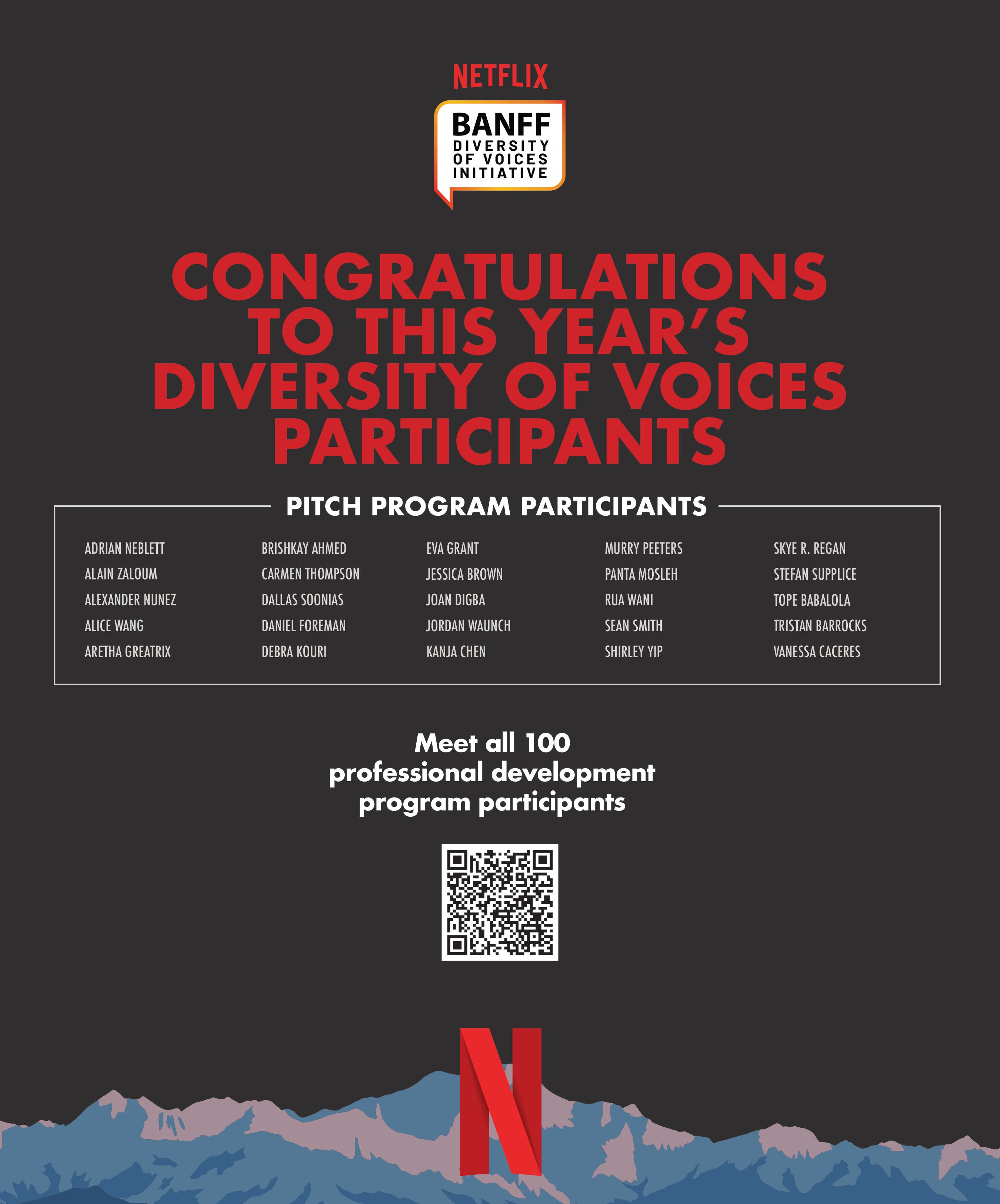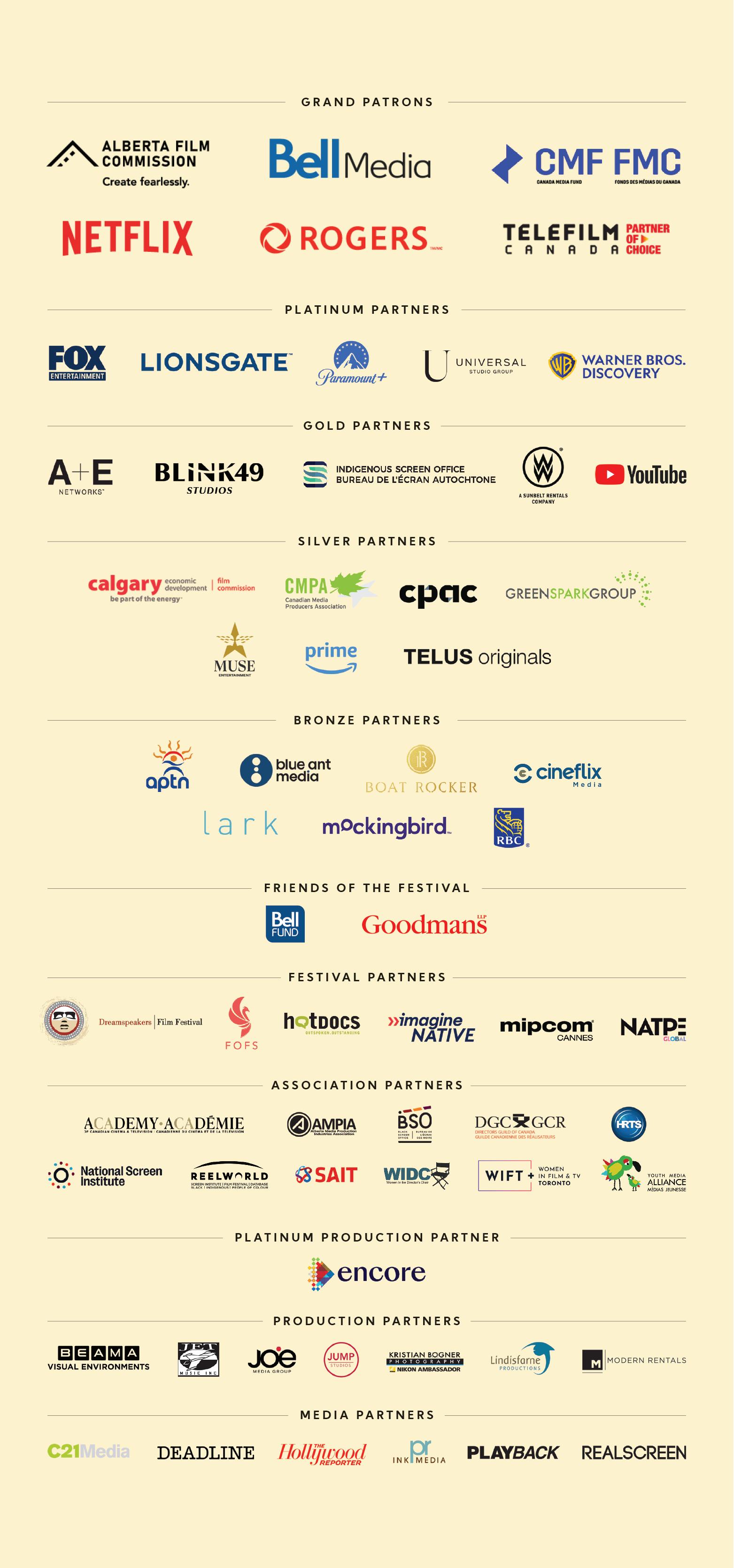Canadian indies look abroad to fill domestic financing gap

Indie List 2024 results are in Canadian Screen Awards TV nominees roundtable





Canadian indies look abroad to fill domestic financing gap

Indie List 2024 results are in Canadian Screen Awards TV nominees roundtable




THE OTHER DAY I WAS FLIPPING THROUGH CHANNELS (yes, I still have cable) and I stumbled on a troubling statement: that television doesn’t last as a form of entertainment on Earth beyond 2040.
The line came from an old episode of Star Trek: The Next Generation called “The Neutral Zone,” in which cryogenically frozen humans from the 20th century learn about life in the future.
Of course, back in 1988 when this line was written, few had any idea of how the concept of TV as it existed then would evolve so enormously by 2024 with the entrance of streaming. As traditional broadcasters continue to get edged out with subscriber and advertising losses, 2040 doesn’t seem too far off.
But the episode was also written at a critical juncture for the TV sector, right before the 1988 Writers Guild of America (WGA) strike, which still holds the record for the longest WGA strike in history at 153 days. (Last year’s WGA strike just missed the mark at 148.) At that time, the sticking points in negotiations were over residuals for hour-long programs and stronger creative rights for writers.
So, was the 2040 line the product of the times, or a prescient prediction of the troubles to come? I can only imagine how screenwriter Maurice Hurley felt about the state of the TV business while writing that episode, and the trepidation felt by the writers of the time that compelled them to stay on the picket line for 153 days.
To me, the throughline in all of this is that the industry has managed to find its feet, one way or another. In a time like this, with tightening budgets and regulatory uncertainty, there are many reasons to wonder if TV will even make it to 2040. But there’s proof that the industry is still fighting to survive, as seen in May when the Writers Guild of Canada and the Canadian Media Producers Association averted what could have been the first writers’ strike in Canada’s history.
The industry’s resilience is what inspired our cover story (page 14), which examines how Canadian producers are overcoming a downturn in domestic commissioning to keep their production slates rolling. Of course, there’s still plenty of worry out there, highlighted in the results of our annual Indie List survey (page 25).
The evolving nature of the business is also touched on in a roundtable discussion with a number of top industry talents to celebrate their 2024 Canadian Screen Awards nominations, which can be found on page 20.
For this issue, we’re celebrating some of the powerhouse producers that demonstrate that very resilience out of Canada: Insight Productions’ John Brunton (page 32), who is winning the Academy Board of Directors’ Tribute Award at this year’s Canadian Screen Awards, and prolific producing duo Jennifer Kawaja and Julia Sereny (page 35), who are being inducted into Playback’s Canadian Film and TV Hall of Fame.
While it’s too early to say whether TV as we know it survives for another 16 years, my guess is that the innovators of this business will still find a way to tell stories, no matter what the format.
Kelly Townsend Editor, Playbackvp, publisher - playback executive director, banff world media festival
Jenn Kuzmyk jkuzmyk@brunico.com
editor Kelly Townsend ktownsend@brunico.com
senior reporter
Taimur Sikander Mirza tmirza@brunico.com
contributors
Mark Dillon, Amber Dowling, Andy Fry, Ashleigh-Rae Thomas, Alexandra Whyte
ADVERTISING SALES
associate publisher Kristina Ejem kejem@brunico.com
senior account manager Alessandra Cannito acannito@brunico.com
account manager Christopher Omenye comenye@brunico.com
BRUNICO CREATIVE art director Andrew Glowala aglowala@brunico.com
production & distribution supervisor Adriana Ortiz aortiz@brunico.com
BRUNICO AUDIENCE SERVICES manager Christine McNalley cmcnalley@brunico.com
CORPORATE president and ceo Russell Goldstein rgoldstein@brunico.com
evp, realscreen & strategy and editorial director Mary Maddever mmaddever@brunico.com
Playback is published by Brunico Communications Ltd., 366 Adelaide Street West, Suite 100, Toronto, Ontario, Canada M5V 1R9 (416) 408-2300; FAX: (416) 408-0870
Web address: www.playbackonline.ca
Editorial e-mail: ktownsend@brunico.com
Sales e-mail: sales@brunico.com
Sales FAX: (416) 408-0870
© 2024 Brunico Communications Ltd. All rights reserved.
Canadian Postmaster, send undeliverables and address changes to: 8799 Highway 89 Alliston, ON L9R 1V1
U.S. Postmaster, send undeliverables and address changes to: 8799 Highway 89 Alliston, ON L9R 1V1
playbackcustomercare@brunico.com
Canada Post Agreement No. 40050265. ISSN: 0836-2114 Printed in Canada.
Canada’s Leading Entertainment and Media Company is a Proud Grand Patron Sponsor of the Happy 45th Anniversary, BANFF!
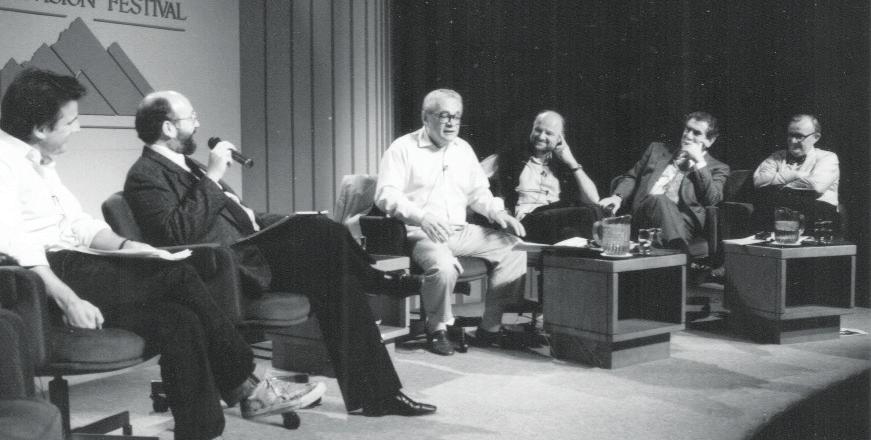
Past and present Banff World Media Festival leaders discuss its 45-year legacy.
BY ASHLEIGH-RAE THOMAS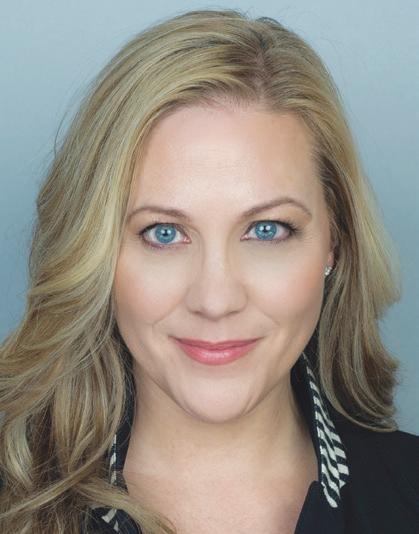
THE BANFF WORLD MEDIA FESTIVAL (BANFF) HAS COME A LONG WAY since its 1979 beginnings as the Banff Television Festival.
It was “a small, local event with some charm,” describes Pat Ferns, who was a volunteer board member during the 1980s and 1990s, and eventually worked his way up to CEO in 2004.
“I tended to get the people I was working with internationally to come to the Festival, expose them to the Canadian industry, and show Canadians what was possible,” Ferns says of the Festival’s earlier iterations.
BANFF is entering its 45th year with a four-day event, beginning on June 9. Governed by the Banff Television Festival Foundation and produced by Playback parent company Brunico Communications, the Festival and its Rockie Awards include participation from roughly 50 countries each year, and centre on both the international and Canadian screen industries.
Jenn Kuzmyk, BANFF’s current executive director and VP, publisher of Playback, says it has become more accessible in its recent iterations. “We have made efforts since 2018 to continue to create access for emerging people in the industry, but also people who are underserved in the industry.”
Programs such as the Netflix-BANFF Diversity of Voices Initiative, the BANFF Spark Accelerator for Women in the Business of Media and the Indigenous Screen Summit have reduced barriers for Indigenous and racialized producers and creators as well as women and professionals from intersectional backgrounds to attend.
“We have some of the biggest industry-access programs in the world,” says Kuzmyk. “They have brought more than 700 individuals who are Black, Indigenous, and people of colour across the years, and this has become such a core piece of who we are and what we do.”
Opening doors has helped enrich BANFF’s foundation as a powerful pitch platform. Festival delegates advance or conclude deals and sales worth an estimated $1.95 billion each year, according to a Nordicity study from 2019.
Ferns recalls how some of his contributions helped build that foundation.
“I created a format, which was called the Market Simulation,” he says. “It was the first public pitching opportunity in the world. And after I did it there, it became a fixture at the Festival. Part of BANFF’s major legacy is that we created a platform where independents were able to pitch projects in public.” That live-pitch format and legacy continues today within the Indigenous Screen Summit’s annual Pitch Forum, which kicks off the Festival each year.
During the 1980s, BANFF went from charming to formidable. “During that period, we doubled fundraising, we doubled attendance, we doubled everything,” says Ferns.
Of the Festival’s current trajectory, Kuzmyk says, “I’d like to see it continue to grow. Partially in size, but mostly in impact.”
She describes some of that impact as the Festival’s ties to the Emmy Awards nomination and voting period, which, this year, begins on June 13, one day after the 45th BANFF ends.
The Festival also attracts network, studio and streaming C-suites, showrunners, decision-makers and and creatives from across the global industry. Kuzmyk says it is often referred to as “the Davos of media,” harkening to the power set that descends upon the Swiss town that hosts the annual World Economic Forum.
“I think that this is a Canadian success story,” says Ferns. “It had its challenges over the years, but it became a vital part of the domestic industry, and rose to become a vital part of a world industry. And I think the calibre of the programs and people we’ve attracted over the years have made it an important institution in the world of television.”

Rise of the Raven EP Ari Lantos discusses the financing strategy behind the epic series.BY ANDY FRY
ONE SCRIPTED PRODUCTION EXPECTED TO MAKE AN INTERNATIONAL SPLASH in 2024 is Rise of the Raven, an epic 10-part series from Robert Lantos’ Toronto-based Serendipity Point Films.
The story of 15th century Hungarian military hero Janos Hunyadi is a passion project for Hungary-born Lantos. Speaking to Playback, his son Ari Lantos, an executive producer on the series, said he spent two years in Hungary to make it happen, overseeing huge location and studio shoots. “We were determined to make the show as authentic as possible,” he says.
Early on, says Lantos, “we decided we did not want a Hollywood approach to this distinctive story. Instead of making an English-speaking production, every character speaks in their native language – Hungarian, Turkish, Serbian, Italian and so on.”
L. Gellért portrays historical Hungarian general Janos Hunyadi in Rise of the Raven, which had a showcase at the London Screenings in February.
Inevitably, this influenced the way the series was financed, says Lantos. It was pulled together through contributions from a number of international broadcasters, Hungarian public funding and an investment from German producer and distributor Beta Film.
“It is the type of show that could have found a place on a North American streamer,” he says. “But our approach was to focus on European partners first. Our initial partner was the National Film Institute in Hungary, and Beta Film came on board soon after.”
Several European sales have already been completed, including Austrian pubcaster ORF and Hungarian channel TV2, with other negotiations in the works while the series is in post-production. However, Lantos thinks Rise of the Raven will also appeal to English-language buyers and global streamers: “It has all the hallmarks of the epic, historical pieces that are working on platforms around the world.”
One intriguing question is whether Rise of the Raven’s distinctive Euro-centric financing model can be a template for further Canadian productions. “I think it’s a viable model, and we will explore it on other productions,” says Lantos. His only proviso is that producers should partner with territories that offer the kind of package available in Hungary. “Hungary’s tax breaks, studio infrastructure and crews made this scale of production possible.”



Entertainment
One Canada no more – the newly rebranded Lionsgate Canada is embracing opportunities in the domestic market.
BY KELLY TOWNSENDLIONSGATE EXPANDED ITS PRESENCE IN CANADA IN A BIG WAY AT THE END OF 2023 when it acquired the film and TV assets of Entertainment One (eOne) from Hasbro, along with its stake in the Canadian business.
Six months after the transaction’s closure, Playback can exclusively reveal that the entity once known as eOne Canada is being rebranded to Lionsgate Canada.
While it’s a major change for a roughly two-decade old brand out of Canada, it’s a necessary one, according to Jocelyn Hamilton, Lionsgate Canada’s president, television.
“From my perspective, this is an evolution,” Hamilton tells Playback, stating that the entities are “stronger together” under the Lionsgate banner. “If you’re not evolving or growing with the market changes, you might get left out.”
Kevin Beggs, chair and chief creative officer of the Lionsgate Television Group, says it’s a fitting extension for the larger company, which was founded by Frank Giustra in Vancouver in 1997.
“The best thing that any company that transacts can hope for is good stewardship in the hands of the acquirer,” says Beggs. “Lionsgate has a deep connectivity and history in the market and a profound appreciation for the value of great Canadian production.”
The content team in Canada is moving full speed ahead, shepherded by Kerry Appleyard, who joined earlier this year as SVP scripted and unscripted, under Hamilton’s leadership. Some of that momentum is supported by the synergies between the global teams, including the unified unscripted teams under Lionsgate Alternative Television.
“Anything that adds more investment, more focus and additional reach [in the Canadian market] is a win for both the business and the industry,” says Beggs.
This interview has been edited and condensed.
Playback: What was the business interest for Lionsgate to expand operations in Canada?
Kevin Beggs: The value of what Jocelyn and her team have created in production, distribution and coproduction was very clear to me, [as well as] CEO Jon Feltheimer, vice-chair Michael Burns, Lionsgate Television Group president Sandra Stern, Jim Packer, who heads distribution at Lionsgate International, and Susan Hummel, who’s been on the ground in Canada for many years now.
Coming out of COVID and the strikes, there’s never been more pressure on everyone’s margins. Supporting a thriving and robust business that is already built was so much easier than trying to recreate it over time in this market.
There were some amazing pieces in the eOne catalogue that really appealed to us, including on-air shows like The Rookie and Yellowjackets. And it was clear from the very first meeting with Jocelyn and her team that, not only were we interested in preserving and maintaining a core business there [in Canada], but actually lending all the support we can between our distribution reach, our M&A expertise, our robust non-fiction business and scripted expertise.

Jocelyn Hamilton: It just makes sense. Lionsgate is domiciled in Canada and now we’re adding to that to make this an even stronger and bigger entity here.
We’re still a separate entity and a Canadian business. We have our own board of directors with veterans on the board, such as Christine Shipton, Corrie Coe and Laszlo Barna, so we get a lot of guidance from them.
How much of the Canadian team’s slate is going to be maintained following the Lionsgate integration?
KB: All of it is going to be maintained. What was exciting to me was the robust list of clients that Jocelyn had created in the U.S. and Canada. I think everyone has realized, more and more, that coproductions, enhanced presales and global collaboration are going to be key to keep television productions running and profitable.
So much of that leg work had already been done [under Jocelyn]; the partnerships with Hallmark and

Amazon and all kinds of clients that are globallyfacing, but most specifically anchored in the U.S. That formula, when it can be tapped into, is really potent, but not easy to do. Jocelyn has a firm grasp on both sides of the market.
How much of a balance will there be between scripted and unscripted on the Lionsgate Canada slate?
JH: I mean, it’s all opportunistic. We have a great development slate in both scripted and unscripted. I would say there are probably equal amounts of things in development for both genres.
We’re working really closely with the larger Lionsgate Alternative team, which includes businesses in the U.K., the U.S. and Canada. Together we’ll be so much stronger. We will develop something here for unscripted, and the team in the U.S. will be helpful in bringing it out into their market so we can manage the cost effectiveness and put the financing together. On the scripted side, it’s a similar story.
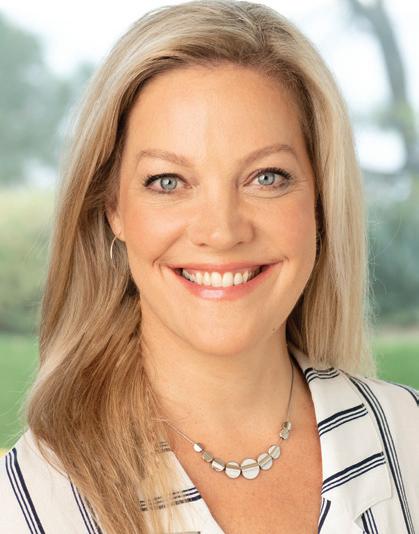
KB: More to come. We’re going to be front and centre on some of the big BANFF events. It will be our first quasi company off-site since we joined up in December, so we’re looking at that as an opportunity for us to all get to know each other a little better.
We’re hopeful that we will be talking about various productions soon and be boots on the ground and in the trenches together. There’s no specific announcement other than the rebrand, but I think our presence there is going to speak to our focus on the partnership.
who know the business and the law. Recognized worldwide as one of the leading practices in Canada, dedicated exclusively to film and television,

Industry experts discuss the affordability of virtual production and how it can spur creativity.BY TAIMUR SIKANDER MIRZA
PRODUCERS – virtual production technology has reached a level of maturity in which it can deliver highquality results at lower price points, according to Dark Slope co-founder Raja Khanna.
At its core, virtual production merges the digital and physical worlds in real-time. It has become nearly synonymous with the technique brought front and centre by the debut season of Disney+ series The Mandalorian (2019), which leveraged game engine tech to create real-time photorealistic sets displayed on massive immersive LED walls. Khanna tells Playback that, at the time, the technique was actually a more expensive way of doing things.
Toronto’s Dark Slope is well-versed in the tech, operating two sound stages that are purpose-built for virtual production. The company launched an advanced virtual production smart stage with SideFX Software in the city this spring.
“The technology and the processes have evolved very quickly [since],” he says, adding that, other than its benefits of cutting production hours and removing time and location constraints, virtual production can provide cost efficiencies of up to 40% when compared to location shoots for certain types of shots or scenes. And it can help lower a production’s carbon footprint from between 20% to 50%, according to a 2023 study by Belfast-based Studio Ulster
Nic Altobelli, producer and owner of Vancouverbased naltobel productions, who recently worked with Vancouver’s Versatile Media to shoot a proof of concept for A.J. Garces’ film Iron Flower, agrees that the tech allows for greater production value. For example, films in the $5 million to $15 million budget range can capture scenes that would previously have been associated with projects of a budget of $50 million to $100 million, says Altobelli.
The market for virtual production is also growing. Revenue from LED walls for virtual production is set to expand from $28.5 million in 2023 to $66.7 million in
2028 in North America alone, according to tech research and advisory firm Omdia.
Khanna says he anticipates the wider adoption of the tech will spark more creativity and “breathe new life” into formats such as reality and competition shows.
In an indication of what that may look like, last year Dark Slope partnered with Toronto’s Insight Productions to produce a pilot of a Wipeout-style TV competition show for WildBrain and Peacock, titled Speedrun. In it, a virtual obstacle course is generated using Epic Games’ Unreal Engine, with participants materializing as CGI avatars.
Key drivers for wider adoption are purpose-built stages and LED walls, the rapid evolution of tools that are simplifying virtual production workflows and the entry of more players in the LED wall manufacturing market, says Khasan Aripov, CEO at SP Studios, which launched its virtual production studio in Mississauga, Ont. last May. There were a record number of LED manufacturers at the 2023 NAB trade show in Las Vegas, according to a postshow report. Aripov predicts that increased competition will result in reduced supply costs.
A big trend Aripov is seeing is medium-sized stages and mobile walls that don’t require large crews to operate, just a stage operator, an Unreal Engine artist and a VFX supervisor. Aripov says more projects are turning to these more agile walls for car shots as an alternative to the traditional process trailers. Barriers to wider adoption include skill gaps and learning curves.
The library of worlds that game engines like Unreal and Unity can be used to create is also expanding exponentially and providing better-quality assets at significantly lower costs, says SP Studios’ VFX supervisor Conor McNeilly.
Generative artificial intelligence tools, which can be plugged into these gaming engines and create 3D elements within minutes, are set to turbocharge these processes.
Altobelli says there is excitement among filmmakers to see how the space is evolving, adding, “when it comes to lower budget and independent movies, there’s a lot of support and drive to test this kind of tech.”

Here’s a clever tie-in for your next film promotion: Walt Disney Studios Canada, the National Hockey League and National Hockey League Players’ Association partnered to promote the June 14 release of Disney and Pixar’s Inside Out 2 during the Stanley Cup Playoffs. The collaboration includes a 30-second TV spot featuring some of the big feelings players and viewers experience – joy, anger, anxiety and embarrassment – and dynamic dashboard advertising during the games.

Who says live productions aren’t workable for every franchise? Tim Hortons is raising the curtain in Toronto on the original musical The Last Timbit on June 26, inspired by the real-life story of Canadians who were stranded at a Tim’s location in Sarnia, Ont. during a blizzard. The production is a partnership between Tim Hortons and Tonynominated Come From Away originating producer Michael Rubinoff. It remains to be seen whether timbits and double doubles will be served during intermission.

As a way of leveraging consumer interest in experiential installations with pre-2000s nostalgia, Hasbro has partnered with Toronto’s Secret Location to create an immersive experience for its iconic light-up toy. Titled LiteBrite: World of Wonders, the 60-minute installation opened on May 8 at the Illuminarium in Toronto’s Distillery District and is produced by Secret Location.

Merging the internet’s love of rescue animals with its latest film marketing efforts, Sony Pictures Canada collaborated with the Toronto Humane Society to promote the May 24 release of The Garfield Movie. The non-profit held a threeday activation at Toronto’s Dufferin Mall from May 17 to 19, where shoppers could learn about cats up for adoption and take part in activities related to the film. Organizers considered extending to a fourth day, but Garfield hates Mondays.
BY KELLY TOWNSEND
There are ways to utilize artificial intelligence without compromising on the value of human creativity, based on a new campaign from Fuse Creative. In a promotion for Canadian food brand Schneiders, the agency asked OpenAI to generate recreations of Schneiders food photography to see if consumers preferred the fake images to the real thing. The end result? The AIgenerated images were less than appetizing, including hot dogs doused in sesame seeds and fish stick soup.

 BY AMBER DOWLING
BY AMBER DOWLING
Cineflix Rights is on the hunt for its next long-running series.
The U.K.-based distribution arm of Montreal-headquartered Cineflix Media has a longstanding history of selling domestic unscripted shows and giving them international appeal, from the Property Brothers home reno franchise with Scott Brothers Entertainment to the docuseries Air Crash Investigation (Cineflix Productions), which marked its 20th season last year.
The distributor is currently shopping the upcoming Leonard Cohen love story So Long, Marianne, a coproduction between Montreal’s C3 Media, Greece’s Tanweer Productions and Norway’s Letters from Leonard.
The drama series has garnered notable international market interest since launching at the London Screenings and Series Mania earlier this year, Felicia Litovitz, VP, acquisitions, North America at Cineflix Rights tells Playback The drama has been sold to Crave (Canada), NRK (Norway), ITVX (the U.K.), ARD’s FabFiction (Germany), VRT Belgium, SVT (Sweden), DR (Denmark), Yle (Finland), RUV (Iceland) Cosmote TV and Star Channel (Greece) and Movies Best HD (Cyprus), to date.
The company’s other scripted projects out of Canada include Crave originals In Memoriam (Passez-Go) and Late Bloomer (Pier 21 Films), and Syfy series Reginald the Vampire (Great Pacific Media, Modern Story, December Films, Cineflix Studios).
However, unscripted content is still king in the overall slate, with Litovitz noting that it accounts for the majority of Cineflix Rights acquisitions.
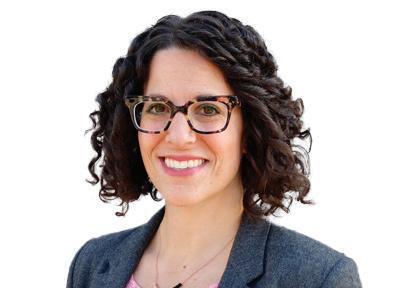
Playback: What role does Cineflix Rights play within the larger Cineflix Media ecosystem?
Felicia Litovitz: Cineflix Rights is the business’ distribution arm. We work closely with other parts of the company, including Cineflix Productions and Cineflix Studios. The rights team is primarily based in London, alongside the majority of distribution companies. I’m part of our North American focus team alongside one other acquisitions exec based out of Toronto. We also have a sales team based out of Toronto.
How many projects does the company acquire for distribution each year, and is that increasing or decreasing?
We pick up three to five new series per year across scripted, in addition to multiple returning seasons. It’s a lot more for unscripted: between 20 to 25 new titles, plus returning seasons. We’re on track to have a similar level of acquisitions this year.
What is the appeal of having a more extensive unscripted library?
There’s more content potentially being produced in the unscripted space. Many more resources also go into a scripted series than an unscripted one. What kind of unscripted genres and stories are you interested in acquiring?
True crime is always a genre that works well internationally, both episodic and serialized. We’d be looking for something that’s approached in a modern way with exclusive access at the heart of it. That’s important. We’re also looking for history series that bring new revelations and include compelling experts and rarely-seen archives. In reality and docuseries, we need big characters and high stakes for those to hit. In the lifestyle bucket, we want home reno and design, as well as celebrity-driven food series with a travel element. Returnable series are a priority for us.
What are you looking for in the scripted space?
Genres like crime, episodic procedurals, contemporary thrillers, elevated drama and YA series are always of interest.
How early in a project’s lifecycle do you like to come on board?
We can often provide insights on what may or may not resonate with an international audience. Specifically for scripted, we can come on board at an early stage to assist with funding, IP options and script development. We can also work with producers to package and pitch to local commissioning execs.
In what circumstances would you board a project later on?
If a broadcaster has already greenlit a project and there’s an opportunity to come on board, we would. We will really join at any stage, and can be helpful in different ways at different stages.
How would you characterize the current content sales landscape following the impact of the WGA and SAG-AFTRA strikes?
The market has been challenging. We’re seeing tighter commissioning budgets and a slowing number of originals. But that is giving us a greater

opportunity to close presales and acquisitions at a competitive level. Programming schedules have more space because buyers are commissioning fewer originals, so they’re looking for content.
Are there any notable Canadian projects in your catalogue that have done well with buyers?
We’ve had a lot of success with Canadian titles. Nat Geo picked up Ancient Bodies: Secrets Revealed from Farpoint Films globally. We have two series from Go Button Media, Secret Nazi Expeditions and Secret Nazi Science, and we’ve made significant sales on those titles. We also have two CNN series from Cream Productions, History of the Sitcom and The Story of Late Night. Then there’s Don’t Hate Your House with the Property Brothers. That’s the most recent Property Brothers series from Scott Brothers Entertainment. And then there are our own productions, Homicide: Hours to Kill and Somebody’s Hiding Something
On the scripted side, it would be Wynonna Earp (SEVEN24 Films, Cineflix Studios), Coroner (Muse Entertainment, Back Alley Films, Cineflix Studios) and Reginald the Vampire

fill the gap in

CANADIAN CONTENT CREATORS HAVE ALWAYS UNDERSTOOD THE IMPORTANCE OF ENGAGING WITH THE INTERNATIONAL MARKET. Decades of cross-border coproductions and distribution deals support Canadian Media Producers Association (CMPA) president and CEO Reynolds Mastin’s assertion that working with the global sector is “baked into the DNA of our production community.”
In part, this export-oriented mindset is down to the sector’s innate entrepreneurship. But Kate Sanagan, Sinking Ship Entertainment’s head of sales and distribution, is speaking for much of the industry when she says that it is also about “economic necessity.”
Mastin says the latter point is more important now than ever, with domestic commissioning in the doldrums. “The last 12 to 18 months have been particularly challenging for our members,” Mastin tells Playback, “with the broadcasters greenlighting much less new content. Right now, it’s like a commissioning dead zone.”
Mastin says the CMPA’s own estimates suggest that there has been a 25% drop in broadcaster commissioning year-over-year, with the kids sector getting hit “even worse.” This fits a longer-term picture, with data from the Writers Guild of Canada (WGC) pointing to a worrying trend dating back before COVID-19. Between 2017 and 2022, according to WGC figures, the number of one-hour drama episodes decreased by 12%. Even more alarming, episodes of half-hour children’s live-action series decreased by 44% and half-hour animation episodes fell by 85%.
Blue Ant Studios co-president Mark Bishop stresses that the domestic system needs to be firing on all cylinders if Canadian companies are to keep up their export success story. In particular, he notes the emerging crisis in kids and family content.
“The immediate problem is that leading domestic broadcasters have got out of the kids business – which means it has become difficult to access the money allocated by the Canada Media Fund (CMF) to kids and family content,” he says. “Without a broadcast licence as a trigger, there’s a pool of CMF revenue that can’t be accessed by producers.”
One of Bishop’s concerns is that broadcasters are starting to siphon off CMF money from kids content into other genres – a move he fears will be irreversible. “There are a lot of funds in Canada that are evolving, including the progressive Shaw Rocket Fund, which has done a great job of embracing the international market. But the CMF hasn’t caught up with innovation in the way people are working – and that needs to be addressed.”
The 2024-25 CMF guidelines include a new measure to help with the funding crunch, allowing distributors to contribute financing to unlock funding, but broadcasters are still required as a trigger. Bishop says he is keen for such initiatives to be ramped up: “Canadians are great coproducers, but we need to be able to trigger money to attract partners.”
In terms of what can be done, Bishop says “we need to accept there is a problem and identify alternative triggers that are not linked exclusively to a Canadian broadcaster.” In the case of kids and family, he says “we need to ringfence investment for the genre. And if we can’t find a mechanism that works, we have to look at other ways to administer the money.”
Mastin shares Bishop’s concerns, and worries that the current situation at home makes it tougher for Canadian companies to become IP-owning studios. “I know that a number of companies are shifting more towards service work,” he says. “That helps keep the lights on in






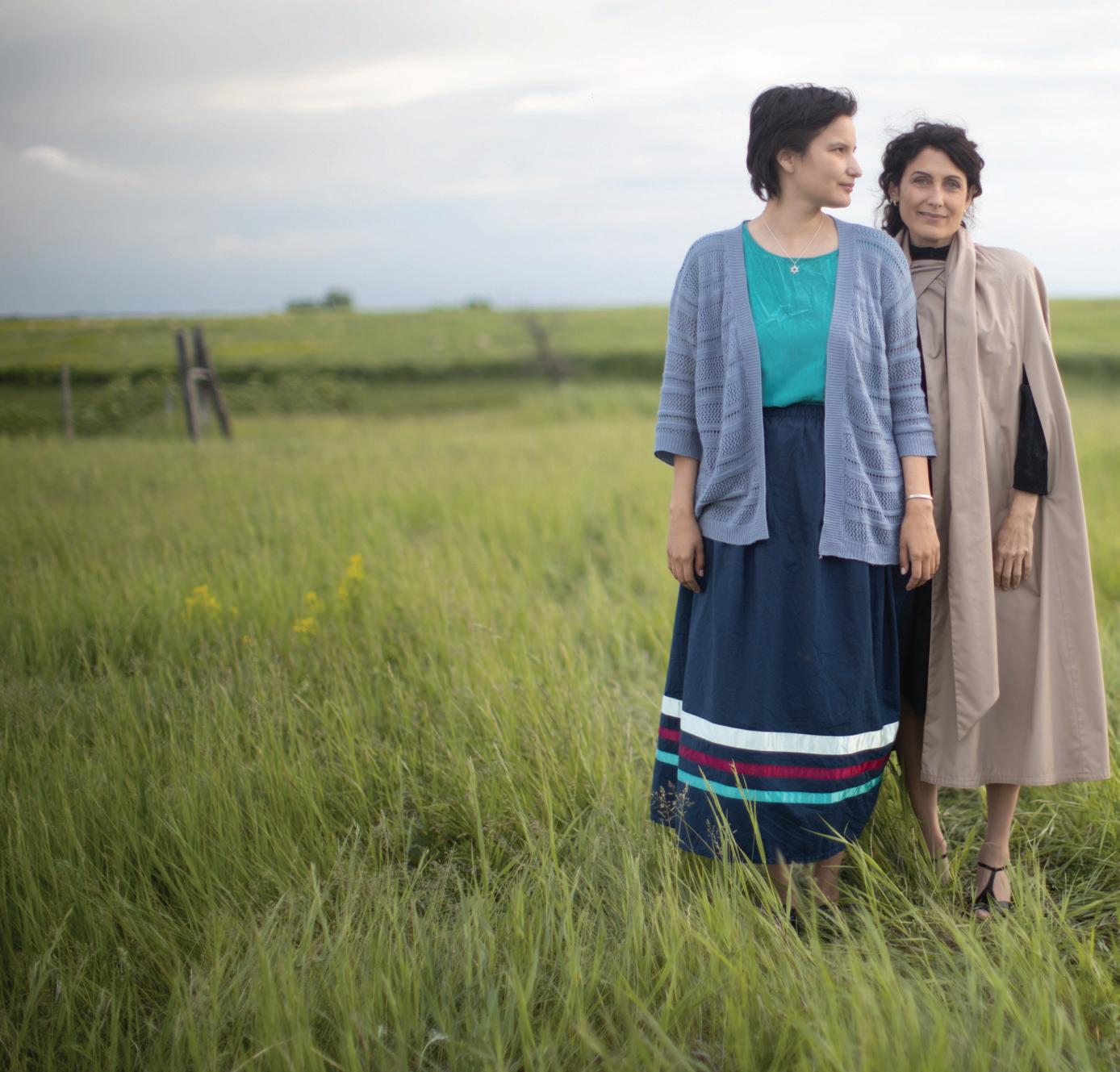



The Canada Media Fund is here to support bold, courageous voices across the audiovisual industry—from television and web series to documentaries, video games, IDM and immersive projects. Wherever there’s a vision and a desire to shine a light, we’re there to light the spark.
cmf-fmc.ca

the short term, but it is not a viable long term strategy for our members.”
Sinking Ship’s Sanagan says the kids and family studio has enjoyed ongoing success with international partners such as Apple TV+ (Jane), Amazon (Beyond Black Beauty) and PBS in the U.S. It has also pulled off complex cocommissions such as Hulu and CBC series Endlings “We would love to go to Canadian partners first,” says Sanagan. “But the reality is, we typically go to the U.S. first. Right now, we are developing Spaceships with Bill Nye and The Planetary Society. That’s a live-action scripted series that started with the U.S.”
Sinking Ship is one of several Canadian firms that has also found innovative ways to secure access to buyers outside the U.S. and streamers. An example, says Sanagan, is the U.K. adaptation of hit kids series Odd Squad, coproduced with BBC Studios Kids & Family and distributed by Fred Rogers Productions in the U.S. “That came out of a two-year conversation where we gradually developed a model that worked,” says Sanagan.
According to Sanagan, live-action series Beyond Black Beauty, coproduced with Toronto’s Leif Films and Belgium’s Saga Film, is another project that emerged from the drive for new forms of collaboration. “This show originated in Belgium and became a coproduction with Canada. It was commissioned by Amazon’s Freevee platform then licensed to WildBrain for broadcast in English-speaking Canada.”
More than ever, then, international financing has become a critical lifeline for Canadian producers. But with the

international market facing its own financial pressures following disruption from the dual U.S. writers’ and actors’ strikes in 2023, the Canadian creative community is having to adapt to stay competitive.
Vanessa Piazza, CEO of SkyMed prodco Piazza Entertainment, says the relationship between Canadian drama producers and the U.S. market has shifted. “The U.S. commissioner is often part of a larger company that is also looking for global rights. In the case of SkyMed, we sold the show to Paramount in the U.S., then Paramount Global Content Distribution came in as the distributor.”
Paramount, says Piazza, has been “an amazing partner” on SkyMed. But the new paradigm requires Canadian producers to think through the pros and cons of working with streamers. “The fact that streamers want global rights could be an inhibiting factor for some Canadian companies,” explains Piazza – particularly those looking to build a content library. This needs to be weighed against the simplicity of a global deal.
Several producers are benefitting from the growing number of programme distributors taking on a quasi-commissioning role. Within Canada, a good example is Boat Rocker Media’s partnership with Shark Teeth Films with factual series such as Secrets in the Ice, Secrets in the Dark and Discovered by Disaster. The partnership allows Boat Rocker to greenlight series without a broadcaster, then secure presales in the international market as the global rights holder.

Meanwhile, Go Button Media has built a formidable slate of unscripted shows by partnering with international distributor-commissioners including BossaNova (Mysteries Of The Ancient Dead) and Autentic (Deadly Science).
Go Button’s model has developed a kind of territorial agnosticism, where the goal is to find an initial partner that can trigger a financial domino effect. “We had one project [A World Without NASA] where the initial greenlight came from streamer Curiosity Stream, with distributor DCD coming on board next,” says co-founder and executive producer Daniel Oron. “In another case [Forgotten Frontlines], Australian broadcaster SBS started the domino effect and then Off The Fence joined in.”
As the model has matured, Go Button has expanded the cohort of firms it works with. Recently, it secured a cocommission from Germany’s ZDF Studios and Canadian pay TV channel Super Channel, entitled Into the Universe: The Secrets of the Cosmos Uncovered
While foreign funding is key to getting shows made, Oron makes another salient point about the emerging model. “Under the traditional model, it can take years to get a commission – and that pace just doesn’t work for us.
What we like about this new set of relationships is that we can get a yes or no almost immediately.”
BossaNova co-founder and CEO Paul Heaney says Canada’s combination of tax breaks, content funds and broadcaster acquisition fees (at both the national and regional level) means the country’s producers are particularly attractive to work with. But he also agrees that there is a kind of muscle memory when it comes to Canadians and content exports. “They have been working internationally for decades and do it without complaint,” he says. “There is rarely ever a cause for concern in terms of the quality they deliver.”
Heaney says there is not much Canadians need to be taught about how to make the distributor-commissioner model work for them. “They understand what it takes to make a show work for the international market.”
In terms of how Heaney likes to operate, he is not prescriptive about what indies should bring to BossaNova. “I typically look at their development slate and tell them what is likely to gain traction among international broadcasters. Often, I encourage producers to lean into their core expertise, work within the areas they understand and enjoy.”
A Heaney innovation that Canadian creators are able to take advantage of is BossaNova’s Development Day, when producers are invited to pitch ideas directly to the company’s buyer contacts. “Our last Development Day was held the Thursday before MIPCOM and had around 40 buyers in attendance,” he says. “We’re expecting that number to increase for the next event.”
Canadian pay TV broadcaster Super Channel has played an increasingly significant role in supporting this evolving distributor-led financing model by providing a bridge back to Canada. Super Channel president and CEO Don McDonald says his company has been able to pivot its content strategy in a way that benefits both Super Channel and producers with global ambitions. “Originally we were a traditional-style pay TV channel with a focus on movies. But that model became harder to sustain –especially after Netflix arrived.”


For Fuse, one of Super Channel’s four services, the answer has been to explore factual and reality series in genres like true crime, history and mystery.
“Canada has a lot of tax refunds and incentive programmes, but you need a Canadian broadcaster to trigger them,” says McDonald. “So we started getting approached by producers that had an international sale, but needed a partner to unlock additional funding from the CMF. For us, the result has been successful returnable franchises like Cruise Ship Killers from Farpoint Films.”
Such is the significance of this model that Super Channel extended its output deal with Farpoint, which will see the outfit produce 150 hours of both unscripted and scripted television for Super Channel over the next year. Upcoming titles include I Died... And Came Back (13 x 60 minutes), Fishing For History (14 x 60 minutes), and One Way Mirror (26 x 60 minutes).
One outfit that has pulled all of the above strands together into a 360-degree model is Blue Ant Media, which has domestic and international channels, as well as global production and distribution. Following the absorption of marblemedia, one particular area of growth is format sales, says Blue Ant’s Bishop. “Best In Miniature has been adapted in multiple territories. Soon we will be able to announce an adaptation of Race Against The Tide.”
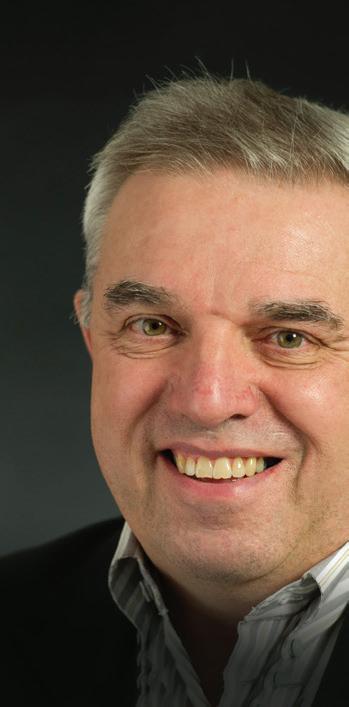
Bishop says there is no accident to the way Blue Ant Media has been built, with the company’s co-founder and CEO Michael MacMillan perfecting a model that worked so well during his time as executive chairman of Alliance Atlantis. “The way we’re structured means there are many approaches we can take to content investment in this rapidly-evolving global market.”








































































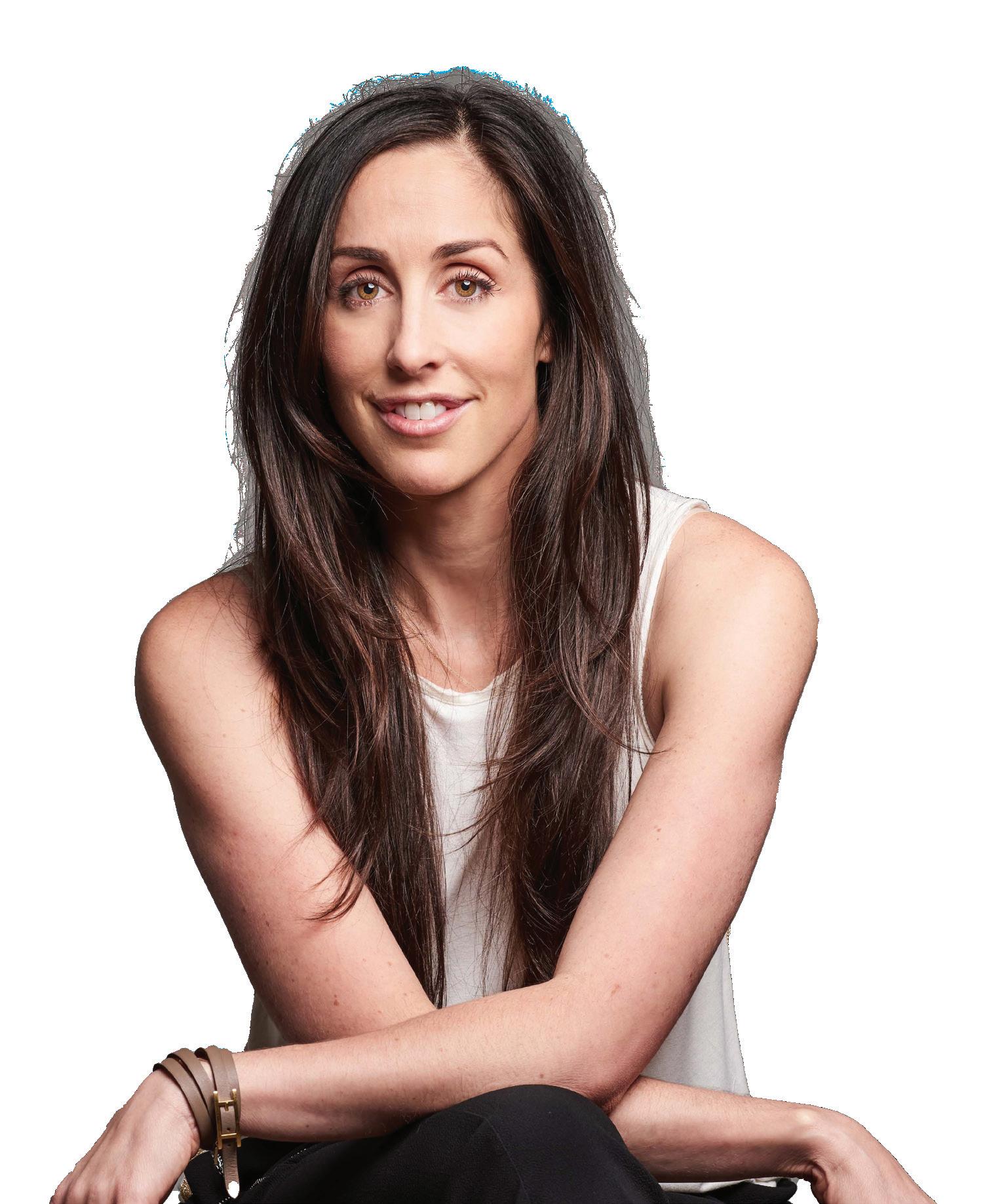

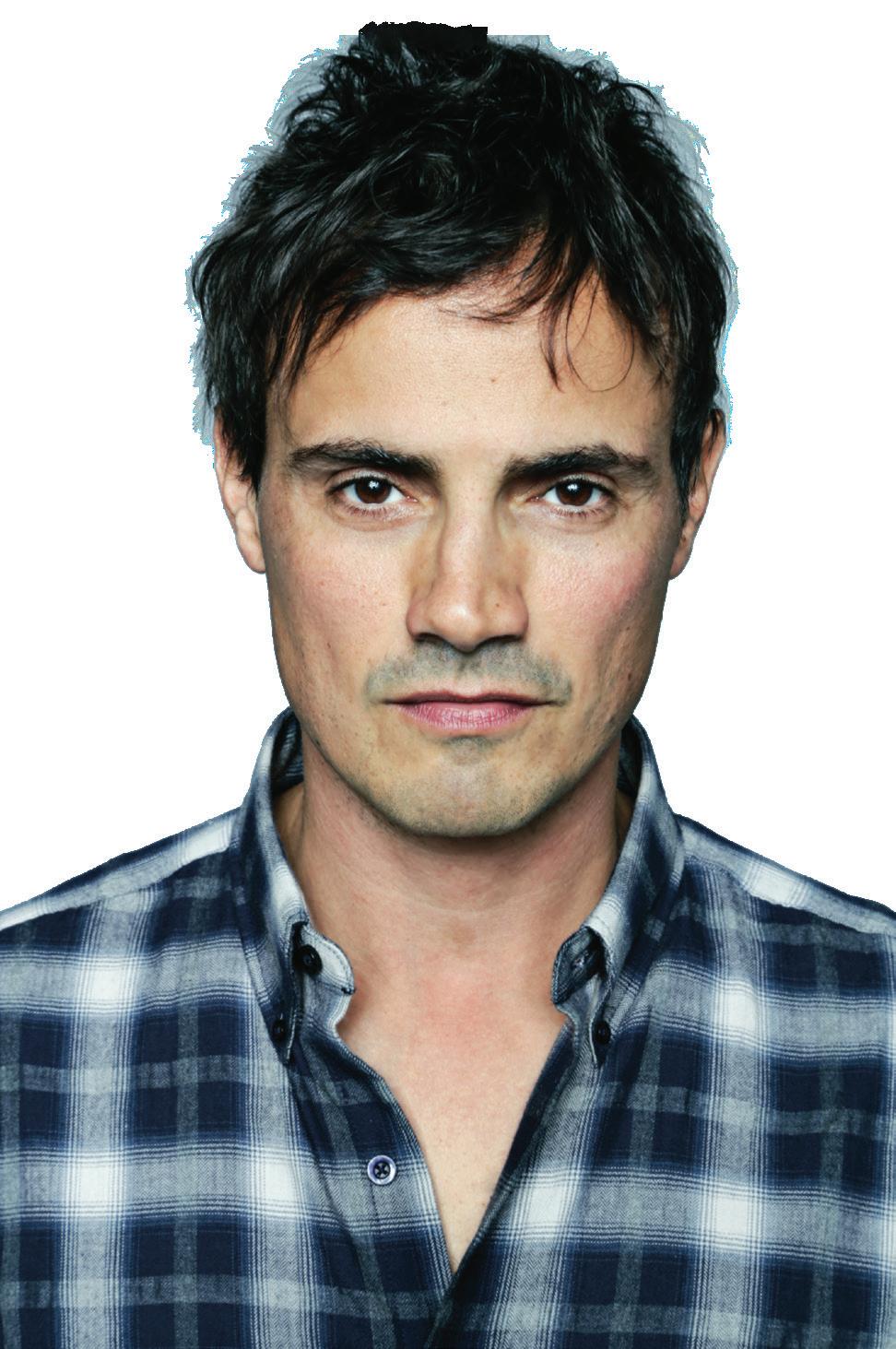
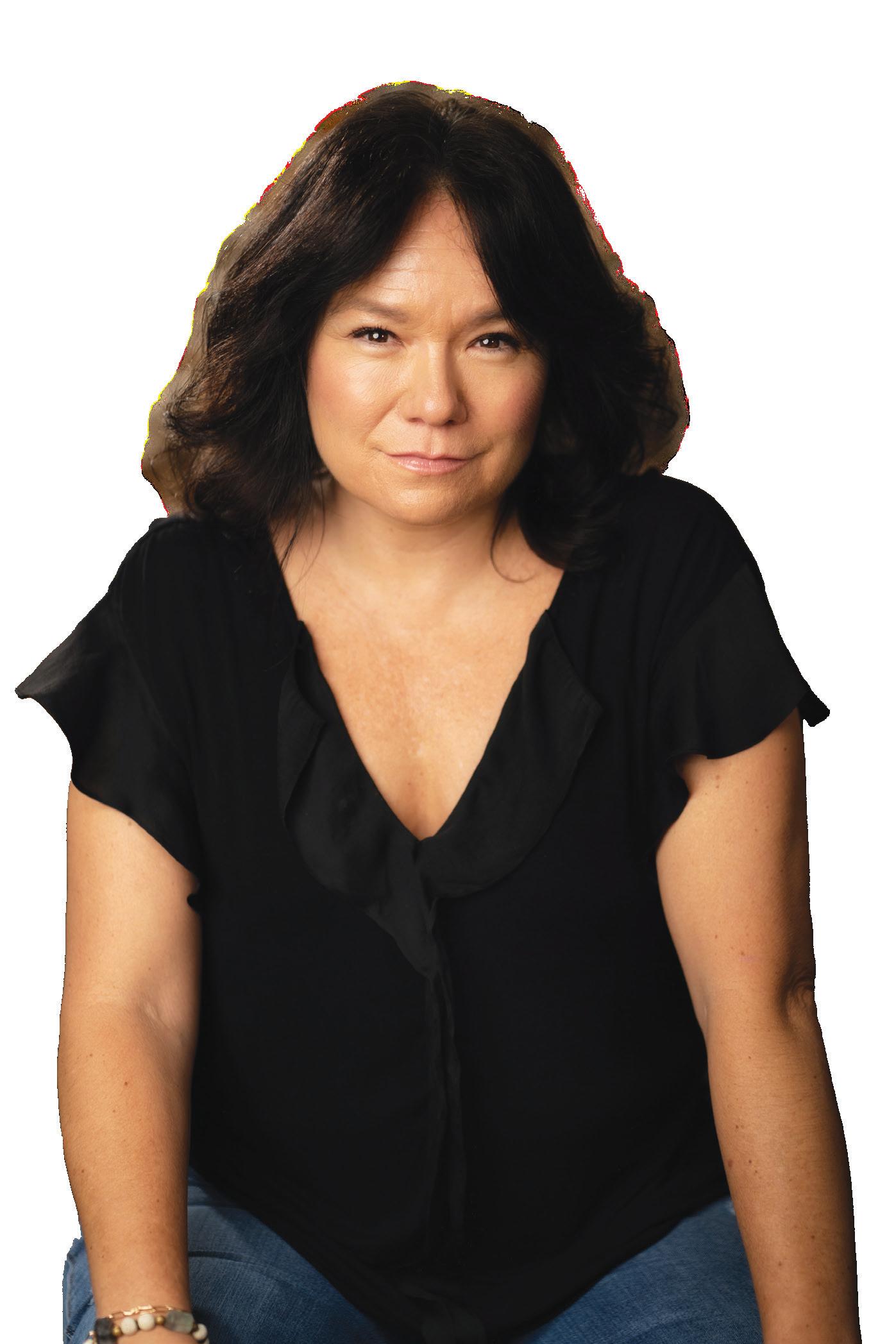
 Catherine Reitman
Sasha Leigh Henry
Christina Piovesan
Fab Filippo
Jennifer Podemski
Catherine Reitman
Sasha Leigh Henry
Christina Piovesan
Fab Filippo
Jennifer Podemski

A panel of some of the top TV nominees at the 2024 Canadian Screen Awards discuss their nominated projects and what success means in today’s industry.BY KELLY TOWNSEND
HOW DO YOU MAKE COMPELLING TELEVISION IN A RISK-AVERSE ENVIRONMENT? What does it mean to write an authentic story? These are some of the topics explored in Playback’s 2024 Canadian Screen Awards roundtable.
Sitting on the panel were Crave/APTN lumi’s Little Bird co-creator and showrunner Jennifer Podemski, CBC’s Workin’ Moms creator, writer and star Catherine Reitman, CBC’s Sort Of co-creator, writer and director Fab Filippo, Crave’s Bria Mack Gets A Life creator and showrunner Sasha Leigh Henry, and Christina Piovesan, whose nominated productions include Brandon Cronenberg’s film Infinity Pool, Apple TV+ animated series Pinecone & Pony, Family Channel’s Home Sweet Rome!, and CBC’s Essex County.
The following is an edited and condensed version of the interview. Go to playbackonline.ca for an extended version of the conversation.
Playback: Christina, with so many financing challenges right now, how are you able to balance such a varied production slate at First Generation Films?
Christina Piovesan: I feel like we’re in a really disruptive time. More than I feel like the industry, specifically the TV industry, has been in a really, really long time. The market is just trying to find its way through all these consolidations and pivots, and it’s not over yet. The whole world feels really disrupted. You feel that when you go to market and you try to sell, you feel that when you try to create something, and you’re trying to figure out what to say and how to say it.
Jennifer, how did you feel when you saw the nomination announcement?
Jennifer Podemski: [Little Bird] was such a challenging project that when I heard that we were being acknowledged in that way, I just cried. I felt like I had
reached the top of the mountain, finally, after however many years it’s been. Like, “They see us! We made it!” Award season, to me, always represents the end of the chapter, so I felt relief and I felt deep gratitude and a lot of tears.
Little Bird had such an emotional ending. What was some of the feedback you received on the conclusion?
Jennifer: There’s an audience who never even knew this reality existed, which was pretty much the consistent feedback from the moment we let people read the scripts. It was like, “Is this real? Did this really happen?” So that keeps coming in.
The rest of the feedback is from the community – the Indigenous community, the Jewish community, but also the film community. It’s just been overwhelming. This one was very personal to me, probably the most personal thing I’ve ever done. So I felt very vulnerable with every part of it.
To stick on the topic of endings – Catherine, how did you decide how to wrap up Workin’ Moms after seven seasons?
Catherine Reitman: We got hit by a curveball. We were literally about to break to draft the final season and my father [Ivan Reitman] passed away overnight. There was this moment where my brother [Jason Reitman] was like, “I think you should pause. I think you’ve got to take a second, because I don’t know if you’re going to be able to do this thing.”
I’ve spoken so much about my father’s passing, but I don’t think I’ve ever actually shared that there was this moment of us thinking we weren’t going to do it. And I just kept picturing him being like, “Get back to work. What are you doing?”
About a week later, I got on with the room in Zoom and I said, “I think we’ve got to rewrite this thing.”
An ending is so difficult. We all know a series we love that ended terribly and we didn’t want that reputation on our back, especially a show that so many women come up to me and say they feel seen by. This is their story, it’s not my story. But when my father passed, it was really hard for me not to be incredibly selfish and say, “Hey, I think I have an idea about this.”
My father always spoke about finding the magic of life, find your magic. And these women, who were daring enough to be unapologetically ambitious and go after something outside of the nursery, were all finding magic in each of their characters’ lives. So we rebroke the arc of the season, specifically the last three episodes and specifically Kate, my character’s episode.
The ending, in a way, was gifted this bigger, larger than life message that got us through the finish line.
What do you think will be the legacy of Workin’ Moms?
Catherine: Are we allowed to speak on that? Here’s my very privileged nepo baby angle on this – legacy is so much bigger than us and we don’t know what the footprint is going to be. It’s larger than me. I don’t know what the legacy of Workin’ Moms is. I know what it meant in my life, and how cathartic and extraordinary the experience was for me on a very selfish level.
A part of me thinks that the way the world is changing, and the way mothers are changing and the way people are deciding whether or not to have kids, I don’t know that my stories will always be relatable. But they sure are a time capsule from the last decade.
We’ve all seen a show that’s just trying to appease the most amount of people it can, and not be specific and not be authentic, and it’s garbage. You hate when you don’t feel like it’s a real thing.
So you kind of have to be selfish. It’s not going to appease everybody, not everyone’s going to feel seen. And then, when you do that, the strangest thing happens, which is that everyone does feel seen because it is so authentically individual.

Jennifer Podemski has five nominations: Best Drama Series and the Barbara Sears Award for Best Visual Research for Little Bird; the Donald Brittain Award for Best Social/ Political Documentary Program for Coming Home (Wanna Icipus Kupi); and Best Biography or Arts Documentary Program or Series and Best Direction, Documentary Program for the 30th Indspire Awards.
Little Bird is the most-nominated program in the television category at 19.
Sasha Leigh Henry: It’s so funny how that happens. I think it’s Toni Morrison who says that in the specific is the universal, but no one else is going to know the bus stop at the end of the street where I grew up. And then you put it out there and people are like, “I thought I was the only one who had that kind of bus stop!”
That is an experience in making a show that I never tire of. It never ceases to surprise me just how specific you can get and it will still translate if it is authentic.
Sort Of holds an incredible space for members of the LGBTQ+ community, so, Fab, how do you feel about its legacy?
Fab Filippo: I’m really feeling what has just been said about the specific being in the universal. Being able to share a lens with Bilal [Baig], even though our life experience is so different, there were so many times I would shock Bilal by my understanding of what they’ve gone through and being othered, in a very different way, obviously. And it was kind of a beautiful connection.
I also can’t speak to the legacy of it. Things are changing so quickly. I remember hearing an executive say, “even six months later, we wouldn’t have greenlit this show.”

Christina Piovesan has four nominations: Best Drama Series for Essex County; Best Animated Program or Series for Pinecone & Pony; Best Children’s or Youth Fiction Program or Series for Home Sweet Rome!; and Best Motion Picture for Infinity Pool. Infinity Pool has 11 nominations overall; Pinecone & Pony has eight; Essex County has six; and Home Sweet Rome! has four.
Last we spoke, Sasha, you were about to go into production for Bria Mack Gets A Life. What were some of your biggest lessons learned from your first series as showrunner?
Sasha: I learned a lot about making a first season in post. The blessing and burden of not having made a Blackled female comedy in so long was there wasn’t necessarily an echo that it belonged to in Canada, tone-wise.
That was really challenging, where you start questioning yourself, like “I laughed when I wrote it. Is it hitting the mark?” And especially because in the post process in the edit, it’s everyone’s job to give the notes to try and make the best thing that it can be. But my job as a showrunner is to figure out which one of those are actually going to help make it the best thing it’s going to be, and which ones aren’t.
What do you think is the secret to success in television?
Christina: I think it’s what everybody’s been speaking to today. I think it’s authenticity, it’s being bold, it’s taking risks. Everybody on this call has done that and has been successful in doing so. Jennifer, I really have to call you out in the sense of Little Bird being so groundbreaking and so beautiful. I just think that the key to success is not being afraid and taking risks.
Catherine: People are so afraid right now, right? It’s a weird moment in America, it’s a weird moment in Canada. It is not a confident moment, creatively nor executively. I’ve felt, since the U.S. strikes finished, that there was a level of anger from both sides. When receiving notes
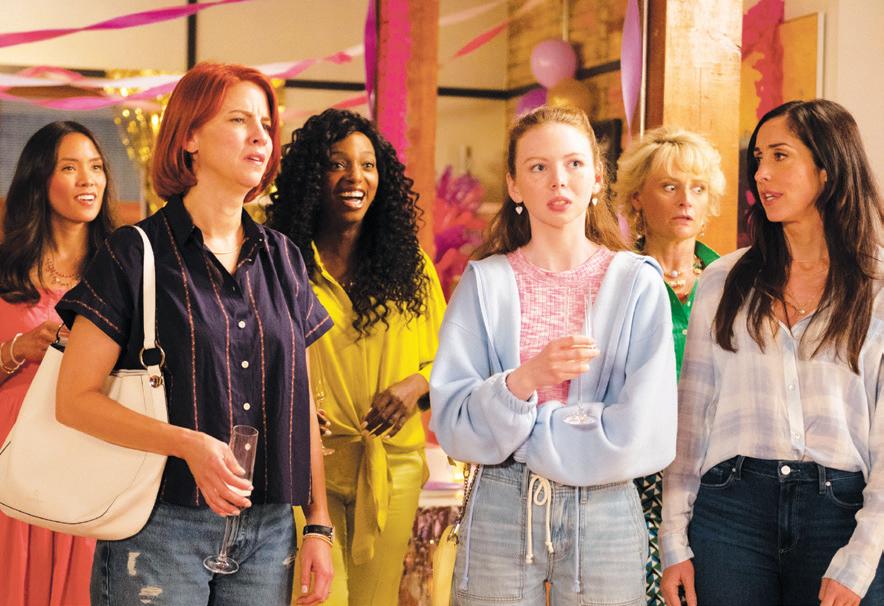
Catherine Reitman has three nominations: Best Comedy Series, and Best Ensemble Performance and Best Lead Performer in the comedy category for Workin’ Moms
Workin’ Moms has 12 nominations overall.
on a few different projects, there were all of a sudden so many cooks in the kitchen, so many people weighing in on every single joke, every single piece, where it starts to water it down and it gets really, really scary. I’ve had one show that worked and I’ve been desperately trying to hang on to my confidence and my voice. It’s amazing how quickly one loud voice can knock that right out of your head.
When fear is at a boiling point, as it is right now in so many networks, you have to be twice as confident in what you’re trying to say. You have to carry that hurricane of what the vision is and only allow the right tent poles to keep the hurricane in place.
Jennifer: Success is such a weird concept because it really depends on whose success it is. The divide between the corporate interest agenda and the artistic content creation agenda feels the farthest away from each other than it ever has.
In the past there was a sense that we were working together, but now it feels a lot more distant and divisive. And success for an agenda that’s really finance-driven and budgetdriven means smaller rooms, shorter time span, just less for the creative.
Catherine: And I just want to take a moment to tout the CBC here, because there were so many moments, whether it was an abortion storyline, or moments of unlikable women, where they really held fast.
While I do feel – to your point, Jennifer – an incredible divide as well, I also can’t help but feel like my parents, the CBC, Sally Catto, Trish Williams and that team over there has been an incredible support in the last decade. The entire United States passed on Workin’ Moms, nobody thought that this show had any place to be and it was greenlit to 13 freaking episodes here.
Sasha: The thing that I keep telling myself is that there is opportunity in chaos and in that unknown and in the topsy-turvy of it all. Just write it, just do the thing, go back to why you like to tell stories.
Wherever the dust settles on the other side, you are going to be fine. It’s dicey times for sure, but I’m not giving into the despair of it. I really do think that it’s going to open up something for a lot of folks. This is my hope anyways.

Fab Filippo has two nominations: Best Directing and Best Writing in the comedy category for Sort Of. Sort Of has 18 nominations overall.
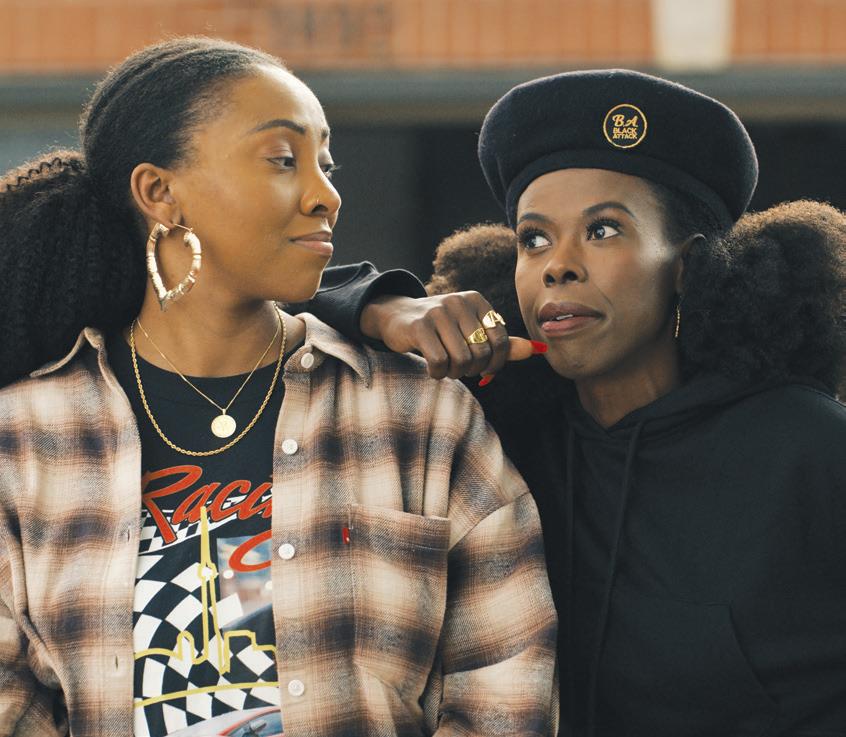
Sasha Leigh Henry has two nominations: Best Comedy Series and Best Writing in the comedy category for Bria Mack Gets A Life. Bria Mack Gets A Life has five nominations overall.

Alberta has always been where creators bring their big ideas and make them larger than life. Now, even more of the world’s dreamers and storytellers will have the opportunity to put even more on the screen with a bigger and broader, budget-expanding Film and Television Tax Credit.
• Extended and more flexible application window
• Now available to reality TV and game show productions
• More incentives for filming in rural and remote locations
• Up to 30% tax credit and zero provincial sales tax

Canadian producers are feeling the pinch as they face increasing challenges when it comes to financing and content sales.

Producers sound off on their biggest obstacles and opportunities in the Indie List 2024 survey results.BY KELLY TOWNSEND
IT’S NO UNDERSTATEMENT TO SAY THAT 2023 WAS A YEAR OF PEAKS AND VALLEYS for Canadian indie producers.
First, the good news: the long-awaited passing of Bill C-11 (a.k.a. the Online Streaming Act)… though it now raises many more questions as to how online platforms might actually be brought into regulation. Many of those solutions were being debated at the Canadian Radio-television and Telecommunications Commission (CRTC) at press time, including how to get more funds flowing into the sector, where they’ll come from and where they’ll go.
The film and TV business as a whole was disrupted by a 148-day Writers Guild of America strike, which was overlapped by 118 days of labour action from the Screen Actors Guild – American Federation of Television and Radio Artists. The strikes led to a pause in service work in Canada and a paralysis in the international buyers’ market from which the industry still hasn’t quite recovered (see page 29).

Closer to home, both public and private broadcasters have rolled out cuts, with CBC-Radio/Canada announcing a $40 million reduction in content spend in the 2024-25 fiscal year. (The federal government has since injected more funds into the pubcaster.) Corus Entertainment CEO Doug Murphy, meanwhile, disclosed to investors in a Q1 call that the broadcaster also anticipates a reduced production investment moving forward.
So, what does that mean for Canadian indie producers? Based on Playback’s Indie List 2024 survey results, they have a slightly more pessimistic view of the state of the industry this year.
Nearly half (46%) of respondents say opportunities for Canadian producers are worse than ever. About 41% say opportunities are the same and 14% say they’re better than ever. (In comparison, 44% of Indie List 2023 survey participants said opportunities were the same, 39% said worse and 20% said better.)
“The challenges for Canadian producers have intensified due to a decline in domestic funding and a decrease in the number of Canadian buyers,” says Piazza Entertainment president and founder Vanessa Piazza.
“With less financial support and fewer local platforms acquiring content, producers face significant hurdles in securing resources and distribution opportunities within Canada and must look to the international market or service production.”
Still, others say there are promising prospects on the horizon.
“We think the brand of Canada and the quality of Canadian content being produced for the global stage is better than ever,” says Mark Bishop, co-president of Blue Ant Studios. “From our firsthand experience, we can say there is absolutely an awareness and appetite for international partners, including U.S. buyers, to work with independent Canadian producers.”

Budgeting was on the brain for the majority of survey respondents, with 69% saying that financing and budgets are the biggest challenges facing their business this year. (That’s up from 60% of respondents in 2023.)
About 35% say inflation and global economic factors, as well as inventory available for Canadian programming on Canadian channels, are major challenges. Another 34% cited the level of international market interest in Canadian programming as a challenge. In comparison, 36% cited inflation in 2023 and 29% identified inventory for Canadian programming.
“There needs to be significantly more public and private funds available to creators and indie producers for development spending in order to remain competitive in the global market,” says Jeff Lynas, cofounder and general manager at Blink49 Studios.
Despite the challenges, 62% of respondents say they plan to expand their business this year, either through growing their development slate or hiring new staff. In comparison, nearly 70% said they had plans to expand in 2023.

When it comes to opportunities, 62% are looking to coproductions and coventures (up from 54% in 2023), with 53% identifying the potential of international partnerships (up from 46%). Another 49% have identified exploiting existing IP as an opportunity (up from 38% in 2023), followed closely by exploiting new IP at 47% (up from 42%).
Playback’s Indie List survey was conducted from Feb. 7 to March 22, with the results based on responses from 67 independently-owned Canadian production companies.

*Every year, Playback solicits data from the industry on the volume of independent Canadian producers’ production spending in the previous annum. The surveys are voluntary, and reflect data compiled by each individual company. The exception is public companies which were tallied by Playback based on publicly available quarterly reports. Certain fields may have been left blank as they are not applicable to the production company listed. **The threshold to appear on the Indie List is $1 million in production and development spend.
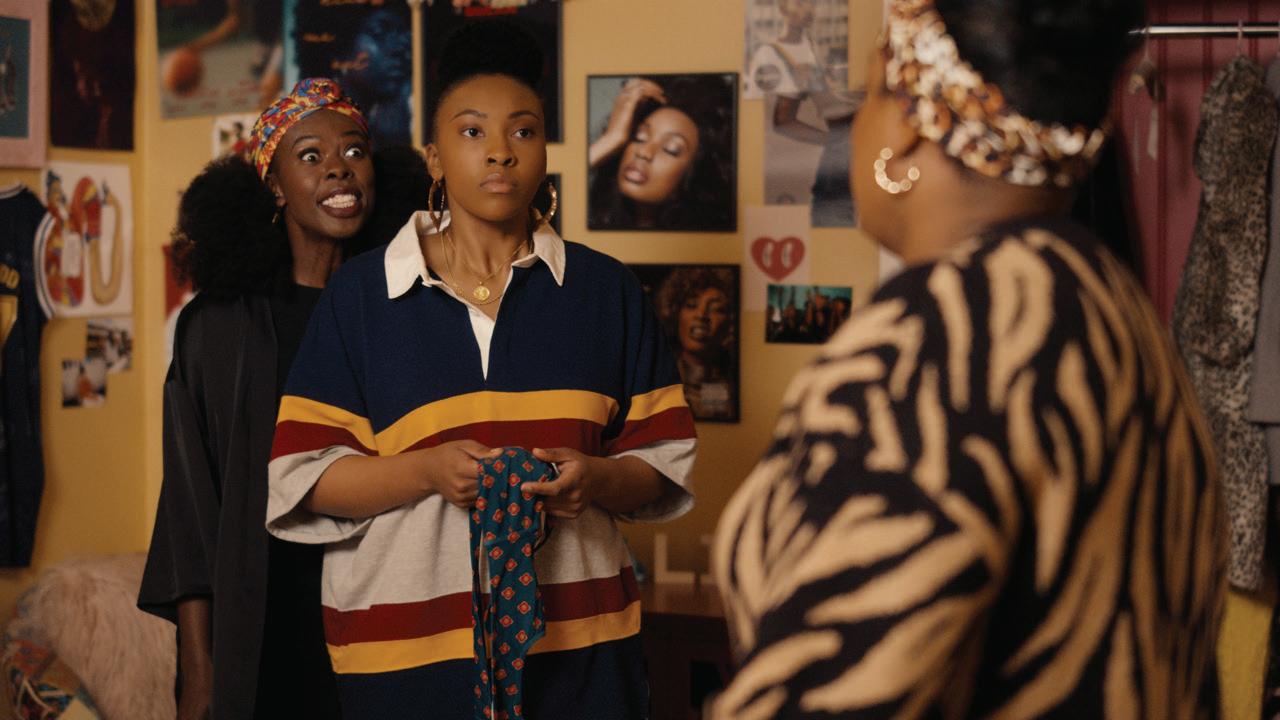

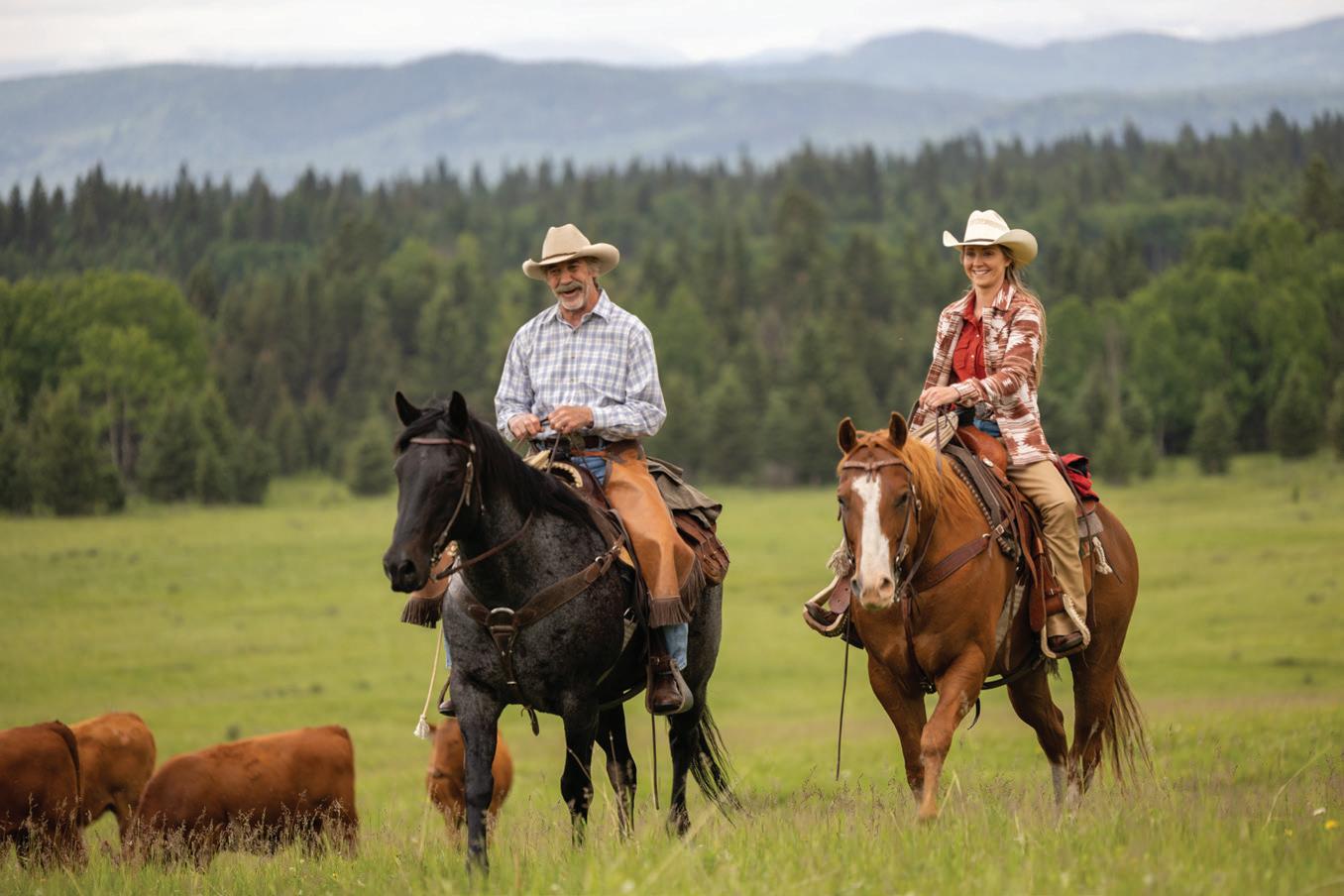



Producers discuss how the service sector fared during last year’s production stoppages.BY TAIMUR SIKANDER MIRZA
THE 148-DAY WRITERS GUILD OF AMERICA (WGA) AND 118DAY SCREEN ACTORS GUILD – AMERICAN FEDERATION OF TELEVISION AND RADIO ARTISTS (SAG-AFTRA) STRIKES led to a months-long stoppage in service work in Hollywood North, with Canadian producers and unions still surveying the damage.
Crews in Vancouver were particularly impacted, according to the International Alliance of Theatrical Stage Employees (IATSE), which represents more than 34,000 film, TV and live event workers in Canada. B.C. and the Yukon’s IATSE Local 891 reported that gross wages came to about $4.6 million in August 2023, a month into the SAG-AFTRA strike. That number was a year-over-year decrease of 90% from the $48.7 million in gross wages earned in August 2022. The chapter represents more than 10,000 IATSE members.
Toronto’s IATSE Local 873 (the largest IATSE chapter in Ontario) reported gross wages of $5.5 million in August 2023, down from $49.9 million year-over-year.
On the producer front, Indie List 2024 sheds some light on the impact for companies such as Montreal-headquartered Muse Entertainment and Toronto’s Boat Rocker Media. Muse had a $145 million decrease in its service budget in 2023, from $218 million to $72.7 million year-over-year. Boat Rocker reported $75.3 million for 2023, compared to $104.4 million the prior year.
While production companies such as Toronto’s Neshama Entertainment felt the “chill,” they were able to lean into solutions around the stoppages.
Neshama reported a slight decrease in Indie List 2024, dipping down to $54.2 million, compared to $61.1 million in 2023.
Suzanne Berger, VP, production at Neshama, tells Playback that, while the company’s higher-budget shows under WGA jurisdiction were put on hold, it was able to ride out the strikes because of the steady stream of lower-budget TV movies that it produces and sells to


its L.A.-based distribution partner MarVista Entertainment, which has a minority stake in Neshama.
The prodco had a workaround for its Hallmark Channel series
The Way Home, with pre-existing signed contracts for stars Andie MacDowell and Chyler Leigh. The company also worked with its broadcast partners to cast all-Canadian talent, which “spoke well of the Canadian actors community, that we were able to keep making some of our higher budget movies and not have a U.S. star,” says Berger.
Muse Entertainment president and CEO Aren Prupas says the industry is in catch-up mode. “It’s been a slow start to the year service production wise, at least in our home base here in Montreal.”
One of the Muse service works impacted by the strikes was the CBS comedy Ghosts. Its third season was greenlit in January 2023, but saw production delayed until the end of the year before premiering in February with a reduced episode count. The series received a 22-episode fourth season renewal in March, with production slated for summer.
While Muse was able to pivot and produce some projects without U.S. writing or acting talent, it found that engaging Canadian writers was also challenging as they were standing in solidarity with their U.S. counterparts. Prupas says the prodco was able to see through that period as service work represents less than 20% of its overall revenue.
Things are looking up on the service front, however, says Prupas. The company recently took a sales trip to L.A. and is starting to get some inbound calls, particularly for producing in Quebec.
Prupas speculates that the base rate of the province’s service production tax credit, which increased to 25% from 20% in the 202425 budget, could be one reason. The foreign exchange rate could be another. He expects that if Canada’s dollar weakens any further, phones will be ringing “off the hook” from the U.S. and other foreign studios.
Foreign location and service (FLS) production has been a significant driver of the screen sector’s boom in the country. In 202223, FLS productions helped to drive Canada’s total production volume to an all-time high of $12.19 billion, contributing $6.86 billion and creating 137,770 jobs, according to the Canadian Media Producers Association (CMPA) annual Profile report. The report covers April 1, 2022 to March 31, 2023, ending just a few months before the strikes began, said the association.
 Evan Williams, Marnie McPhail, Chyler Leigh and Andie MacDowell in The Way Home
Photo: Peter Stranks
Production on season three of CBS comedy Ghosts was delayed by the writers’ and actors’ strikes. Photo courtesy of Muse Entertainment
Evan Williams, Marnie McPhail, Chyler Leigh and Andie MacDowell in The Way Home
Photo: Peter Stranks
Production on season three of CBS comedy Ghosts was delayed by the writers’ and actors’ strikes. Photo courtesy of Muse Entertainment
The impact on the B.C. sector was “devastating,” says Vancouver prodco Brightlight Pictures founder and chairman Shawn Williamson, who estimates that roughly 90% of production was shut down in the province.
Williamson says he’s noticed a decrease in the number of crews since the strikes ended, noting that it could become a national issue if workers decide that their skills are transferable to other, more stable industries.
Williamson says there were a number of shows that were greenlit and would have potentially filmed in the province, but never moved forward. There were also delays, curtailments and cancellations – all three in the case of the ABC title The Good Doctor, which Brightlight Pictures provides service work for. The show had its seventh season delayed, which was cut from 20 episodes to 10, before ABC announced it would be its final season.
“I don’t know if that was a direct result of the strike … it’s hard to say whether it would have gone to a subsequent season if it had continued uninterrupted,” says Williamson.
Alert: Missing Persons Unit, which Brightlight produces for Sony Pictures Television and airs on Fox, had just opened the writers’ room when the strike was called. It was also delayed.
Berger says the strikes compounded things for an industry already seeing contraction and jobs cuts. Foreign productions brought in $886.6 million in production volume to Ontario in 2023, compared to $1.95 billion in 2022, according to Ontario Creates.
“The chill that we felt up here as crews stopped working was a stark reminder of how much business is brought into this town from outside of Canada,” says Berger.

With the industry suffering a slowdown following the strikes, Williamson says the expectation in the market is that there will be a 20% to 25% reduction in overall production internationally, which will have an impact in Canada, particularly with foreign-owned projects.
“The strikes allowed the studios and the streamers and the networks to look at their overall development strategy … where they were making money and what was selling internationally and domestically, and then out of that, cancel shows or greenlight shows that may have been on the edge,” he says, adding that additional growth in the market will be “years down the road.”




The head of Insight Productions takes a moment from his prolific producing work to reflect on his career, ahead of being honoured at this year’s Canadian Screen Awards.
BY ALEXANDRA WHYTE
WHEN JOHN BRUNTON PITCHED THE IDEA for the teen drama series Falcon Beach to Barbara Williams at Global Television, she knew he had an eye for the Canadian market that few other producers did.
“Part of John’s magic, throughout his career, is that he’s so passionately Canadian,” Williams, now EVP at CBC, tells Playback. “At the same time, he always had big ambitions to make beautiful television that everybody could relate to.”
Beyond Falcon Beach, which aired from 2005 to 2007, the chair, CEO and executive producer at Insight Productions has produced many iconic Canadian TV series during his 45-year career. They include scripted series such as Ready or Not and Hatching, Matching & Dispatching; formats like Canadian Idol, The Amazing Race Canada and Big Brother Canada; and memorable live TV moments, including the Juno Awards and The Tragically Hip: A National Celebration

At this year’s Canadian Screen Awards – which the company has also produced in the past – Brunton is going to be honoured for that special ability to represent Canadians on screen with the Academy Board of Directors’ Tribute Award. At the same time, Brunton’s company is having its best financial year yet, he says.
According to Insight, its revenue for 2024 is up 40% compared to the same period in 2023, and by 35% compared to 2022. The company is also tracking ahead for greenlights and renewals compared to last year.
Beyond his long list of credits, Brunton has several new projects in the works, many of which he can’t talk about. But he does say he’s pursuing “more aggressive partnerships with American and international production partners” and that he’s “on the precipice of landing a big fish.”
Insight also has many new projects in development right now. “We’re doing the opposite of specializing,” says Brunton. “A documentary about Gordon Lightfoot’s career, a reality game show, a scripted show or the adrenaline rush of live television – it’s all attractive to me.”
He acknowledges the challenges of the Canadian market, with fewer broadcasters to work with, dwindling budgets and evaporating advertising. But Brunton has worked his whole career to diversify his portfolio and prepare Insight for this. “We’re trying to keep our heads down, come up with innovative ideas for new shows, tell great stories and explore new technology,” he says. “There will always be an audience that wants to consume great storytelling. That’s what I’ve put my hopes on for 45 years, and it’s served me well so far.”
At the heart of what makes Brunton such a prolific producer is his ability to make uniquely Canadian content. “We are our own country, with our own culture, issues and concerns and [Brunton] always worked hard to make that shine through in whatever project he was making,” says Williams. “Along the way, he’s encountered that
Canada can be a challenge place to shoot, but he never saw that as something to stop him from making a big and spectacular production.”
During his time at Insight, Brunton has been awed by talented, uniquely Canadian voices and tapped into what those audiences wanted, especially when it wasn’t represented in the pervasive U.S. content seeping on to Canadian airwaves. That often included figure skating, working on TV specials such as 1996’s Scott Hamilton: Upside Down and hit show Battle of the Blades. He also revered comics, culminating in the recent Prime Video series LOL: Last One Laughing Canada featuring Jay Baruchel, Andrew Phung and Mae Martin. And, of course, musicians played a big role in his career, producing the Juno Awards.
One of Brunton’s greatest gifts is his ability to take reality TV formats from all over the world and share them with Canadian audiences in a way that is different and interesting from the U.S. versions. With Canadian Idol, that meant having the contestants play instruments in homage to Canada’s great history of singer-songwriters; for Amazing Race that often meant travelling within Canada; and for Big Brother that meant completely rethinking casting. “Part of his secret sauce is that nothing is two-dimensional,” says Erin Brock, Big Brother Canada’s showrunner and an SVP at Insight.
“You don’t just cast a nerd or the girl-next-door, you cast people that reflect our country, that are complicated and have stories to tell.”
After struggling in the early pandemic years, Insight has bounced back financially. He attributes the increase to growing the company’s development slate and working innovatively with commercial advertisers and broadcast sales teams, especially on Big Brother Canada
To keep the format, which airs three days a week, profitable and enticing to broadcast partner Corus Entertainment, Insight worked with a record-breaking
11
sponsors, including SkipTheDishes, Samsung and Wendy’s, for season 12. “That’s partly from Insight working closely with the sales department at Corus and growing that aspect of our business,” says Brunton. The same is true of Top Chef Canada, which already has more sponsors signed up than ever before for season 11.
Brunton is now trying to integrate that same concept into more of his productions, including live TV like the Junos. “We try to be good partners with our broadcasters, to help maximize the economics of the shows and bring in as much revenue as we can,” says Brunton. He says he has been so successful at this, that Brunton is frequently fielding calls from other producers, asking him how they can do the same with their shows. He is now looking at how to offer this expertise as a service through Insight, bringing in more ancillary revenue to the company.
Brunton is always looking for new ways to expand his business and adapt with the landscape, which is why in 2018 his company was bought by Boat Rocker Media. Brunton is still a major shareholder with no changes to its operations, but Boat Rocker now owns the majority of Insight. “We’ve largely been left to our own devices to negotiate deals and maintain and build network relationships,” says Brunton. “We try to help each other and share information though.”
At Insight, both under Boat Rocker’s umbrella and before, Brunton has fostered a business model that’s uncommon in the production industry. Typically, production companies will hire legal and business admin teams as full-time salaried positions and creative positions are contract roles. However, Brunton has made sure that his producers, including Brock, are on his staff full-time, which allows them all more security to come up with big ideas and take risk. “Very early on, [Brunton] said that he was building a company of creatives, rather than having all of the showrunners


and creative producers be freelancers, we are the senior management of the company,” says Brock. “He made sure that creative talent was on staff, which creates an environment for great creativity.”
While everyone is encouraged to take risks, Brunton also runs his company by encouraging everyone to be radically honest, says Lindsay Cox, another SVP and showrunner at Insight, who has produced 23 Juno Awards with Brunton to date. “If you have a challenge on set that your broadcaster needs to know about, you call them immediately,” says Cox. “You don’t slow down and try to spin it, you pick up the phone and resolve the issue by being a partner.”
Brunton also makes sure to share the good news, too. If he is ever able to pull together extra tax credits or funding, he always shares that with production partners and broadcasters, according to Cox. That has earned Brunton a lot of friends over the years in the Canadian broadcasting space, which is one of the many reasons that broadcasters are always willing to hear his newest pitch, or go to him first when they need help tackling a big live event, like the Tragically Hip concert, she adds.
One live event that Brunton didn’t work on that still haunts him is the Olympics. When the 2010 Winter Olympics in Vancouver were in the planning stages, Brunton was sure he was going to get the call to lead the opening and closing ceremonies’ broadcast. Instead, an Australian company was hired, which had worked on a previous Olympics. If the games ever return to Canada, Brunton is hoping that call will finally come.
In the meantime, he is characteristically very busy. Brock, Cox and Williams all agree that Brunton never rests. He is always looking for his next project, next format and next genre to dive into. One area that Brunton has, thus far, stayed away from is a classic nature documentary in the style of David Attenborough. But when he was on a vacation in Kenya last year, Brunton spent most of his safari thinking of fresh takes on the format. Even when on vacation, he rarely takes a break.
“This is such a big award that it feels like an end-ofcareer, lifetime achievement, but there are many more chapters for [Brunton],” says Cox.
“ THERE WILL ALWAYS BE AN AUDIENCE THAT WANTS TO CONSUME GREAT STORYTELLING. THAT’S WHAT I’VE PUT MY HOPES ON FOR 45 YEARS, AND IT’S SERVED ME WELL SO FAR.”
– JOHN BRUNTONArisa Cox is the host of long-running competition reality series Big Brother Canada on Global. Photo: Greg Henkenhaf Valeri Bure and Ekaterina Gordeeva competing during season two of CBC’s Battle of the Blades
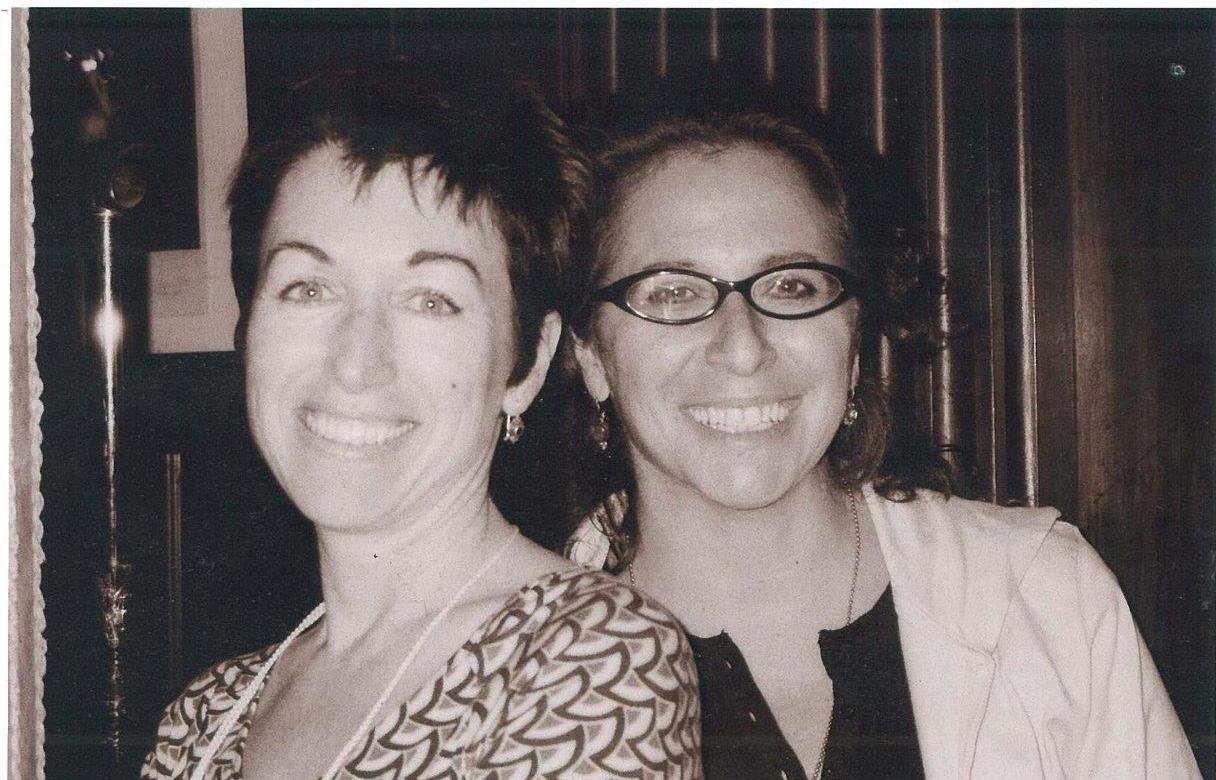
OVER THE COURSE OF THREE DECADES, VOLUME WAS NEVER THE GAME FOR FILM AND TV PRODUCERS JENNIFER KAWAJA AND JULIA SERENY. Rather, they chose to curate a slate of projects they knew they could do well.
“We wanted to tell stories that had meaning and substance, and that would find audiences all over the world,” Sereny tells Playback. “We felt that wasn’t a contradiction. It wasn’t always how other people saw it, but for us, those two things went together.”
Known for most of their careers as Sienna Films – the name was retired four years ago – they forged their reputation with acclaimed features such as New Waterford Girl (1999), Marion Bridge (2002) and I, Claudia (2004), and expanded to TV series with Combat Hospital (2011), Ransom (201719), Cardinal (2017-20) and Sort Of (2021-24). Their shows achieved either critical or commercial success, sometimes both.
Sereny began her career working at the National Film Board of Canada (NFB) and went on to be a producer on the well-received documentary Ravel (1987) from Toronto’s Rhombus Media. She struck out on her own and hung out the Sienna shingle in 1992, taking the name from a poster on her office wall that she had bought in Sienna, Italy.
She began a loose collaboration with Kawaja around the time of the release of Sienna’s first feature, April One (1994), and the latter formally joined the company a couple of years later.
“How we began was an intuitive, organic process,” recalls Sereny. “We sat in one room together, and it was a constant volleying back and forth. We could both be on everything or either one of us could take over anything. It was a fluid approach.”
Their projects embrace their Canadian settings, even if that meant shooting investigative drama Cardinal in northern Ontario amidst ice, snow, floods, locusts and mayflies. Based on novels by Giles Blunt and unfolding in a thinly disguised version of North Bay, Ont., the series stars Billy Campbell and Karine Vanasse, who got to play to her Québécois roots.
The series regularly brought more than one million viewers to CTV (airing in French on Super Écran), and sold to Europe, Australia, South America, Israel and the U.S., where it streams on Hulu.
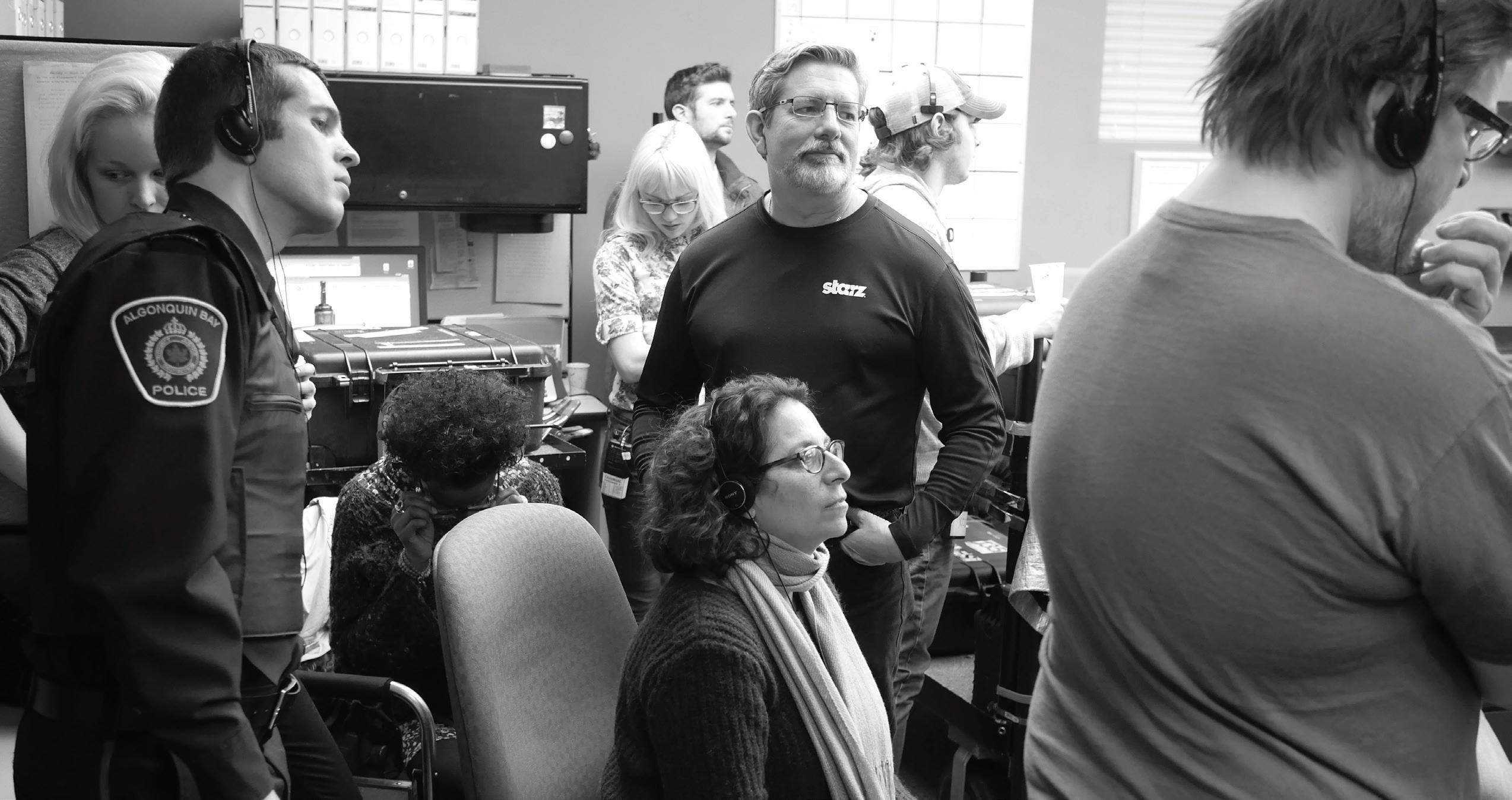
“With Aubrey Nealon showrunning the first season, we were able to take our indie film experience of creating specific worlds on location and add a Canadian noir element to a familiar genre,” says Kawaja, who currently produces English scripted content at Sphere Media, which bought Sienna from Kew Media Group in 2020. (Sereny now produces independently.)
Nealon returns the kudos.
“It was my first time as showrunner and that was a tough show to make,” he says. “But the harder it got, the more I admired Jennifer and Julia. They have the creative and producing chops to do good work, but also bring plain human decency. And that can be a hard combination to find. I felt like I could trust them and that I was in the battle with good people.”
Nealon also co-wrote the pilot for The Porter (2022), which Sienna produced with Winnipeg-based Inferno Pictures for CBC and BET+. “It was challenging to find financing for The Porter and it was politically tricky, but Jennifer just wouldn’t let that show not happen,” he says. “She and Julia are tenacious.”
The Porter tells the story of 1920s Canadian and American train porters who formed the first Black labour union. It impressed with its period production value on a tight budget, and ran the table at the Canadian Screen Awards with a dozen wins.
It was one of several acclaimed series the producers brought to CBC, which appreciated their collaborative spirit. Sally Catto, CBC’s GM, entertainment, factual and sports, ranks them among the country’s finest producers.
“What made them distinct is their gift for identifying, supporting and bringing the best out of talent,” says Catto. “They would remain directly connected to the creative process throughout, but never in a way that was intrusive or disrespectful to [the writers]. They excelled
at connecting both with broadcasters and talent, and that requires a special skill.”
Despite acclaim for The Porter, BET+ pulled out and it didn’t make it to season two.
The U.S. streamer ultimately found the story too Canadian-focused, even though those concerns had been addressed in development, according to Kawaja. It was reminiscent of when, after one season, ABC dropped Combat Hospital, which follows Canadian and international doctors in Afghanistan, and was a huge local success, frequently surpassing 1.5 million viewers for Global.
ABC decided the show wasn’t American enough. “So what does it mean when Canadians can’t afford to produce their own stories, both for those of us in the industry and for the social fabric of the country?” says Kawaja.
Reliable capitalization was the motive behind Sienna being sold to ill-fated conglomerate Kew Media in 2017.
“Running a small production company is very ‘stop and start,’” Sereny explains. “You get something made and then you’re starting again at zero. So we would have to develop more things. As we grew, we had staff that had been with us for a long time and felt committed to them. We had to make sure we were properly financed. It was an inevitable part of success.”
Kew’s backing enabled the CBC series Trickster (2020), based on the book trilogy by Eden Robinson, to get off the ground. Foreign presales were elusive, but, as Kawaja explains, “Kew stepped in and made it possible to move forward, and we are forever grateful because it was one of the most exciting things we made.”
Playback’s Scripted Series of the Year in 2020, Trickster broke ground as an Indigenous-driven horror drama, telling the story of a teen who becomes increasingly aware of his magical powers. As is often the case, once it
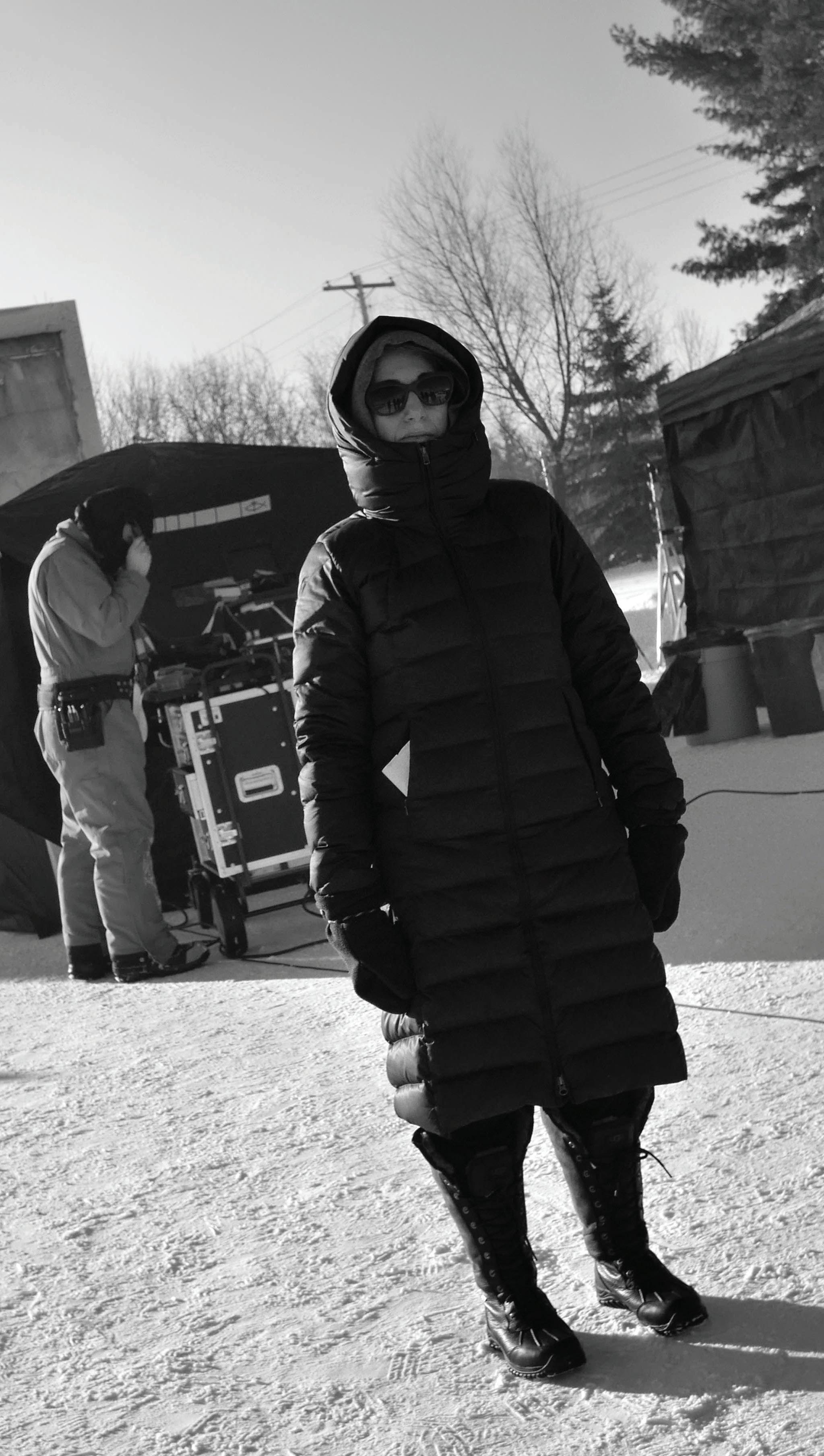
was in the can, foreign broadcasters started picking it up, including The CW in the U.S.
When the overextended Kew collapsed in early 2020, Sphere stepped in and salvaged the show’s distribution rights and allowed The Porter and Sort Of, both in development, to proceed.
But further drama killed Trickster’s planned second season. Showrunner and director Michelle Latimer resigned after questions arose surrounding her Indigenous heritage claims; and instead of replacing her, the production shut down at Robinson’s insistence.
“It was painful for everyone,” reflects Kawaja. “We were developing season two and everyone was trying to figure out how to go forward, but the author was hesitant to do so. And while we could have gone forward, both CBC and Sphere felt we had to respect her wishes.”
There was no sad ending for Sort Of, however. The boundary-pushing comedy-drama about a non-binary millennial trying to manage their Pakistani immigrant parents and the rest of their complicated life enjoyed three critically acclaimed seasons on CBC, and won Best Comedy Series at the Canadian Screen Awards two years in a row.
Co-commissioned by HBO Max (since rebranded to Max), the show was picked up by Sky in the U.K. and M6 channel Téva in France. It garnered rave reviews and won a prestigious Peabody Award, honouring the crème de la crème in media.
The project was brought to them by creators Bilal Baig – also the show’s star – and writer-director Fab Filippo. The producers feared shopping a script for this unique project might be ineffective, so the team agreed to shoot a sizzle reel.
“Comedy is the hardest thing to sell on the page,” Sereny offers. “It’s how one reads it and it’s all about timing. We were convinced this could be something really special and that was the best way to sell it.”
Baig and Filippo stated that the show was ending after season three, not because it was cancelled, but rather as their choice in agreement with the producers.
Sort Of, Trickster and The Porter cement Sienna’s position as a champion of stories about underrepresented groups, something established in earlier one-offs such as the LGBTQ+ rom-com Touch of Pink (2004), step-dancing drama How She Move (2007), and CTV MOW One Dead Indian (2005) about the Ipperwash Crisis.
“That was always my mission,” says Kawaja. “I grew up in the Caribbean, and I went into media because I wanted to encourage a more diverse representation in front of and behind the camera. And at a time when that wasn’t a conversation, I got lucky because Julia felt the same way.”
Playback’s Canadian Film and Television Hall of Fame was founded in 2007 to recognize extraordinary achievements in the Canadian entertainment industry. Inductees are selected by a jury of their peers.
What keeps you up at night?
It’s an age-old question, and one Playback poses annually to producers in our Indie List survey. From financing, interest rates and tax credits, to artificial intelligence and staffing, there are a litany of reasons Canadian producers say they struggle to get some shut-eye.
Below are some anonymous insights from producers on what is keeping them tossing and turning at night.

“How I’m going to get the next show funded while promoting equity and diversity in the projects.”
“Working on projects with long development stages with little money.”
“The total implosion of Canadian commissioning.”

“Not being able to hold on to excellent staff. Waiting for
development greenlights.”
“Interest rates and too many union regulations for independent feature films in Canada.”
“The market for doc features and series in Canada.” ON THE BRIGHT SIDE…
“Nothing; foot is on the pedal to make as much as possible in the next six years then retire from this wonderful insanity. (Oops, I mean industry!)”
